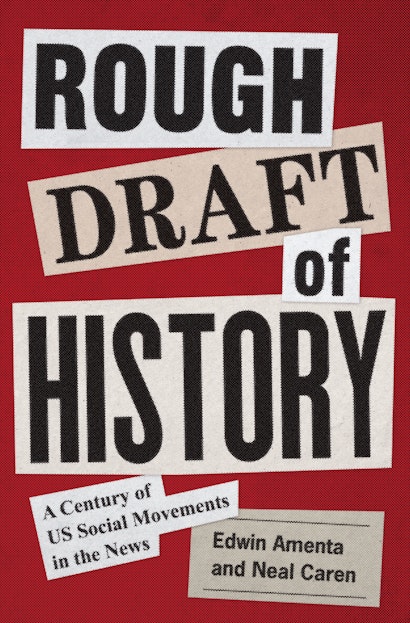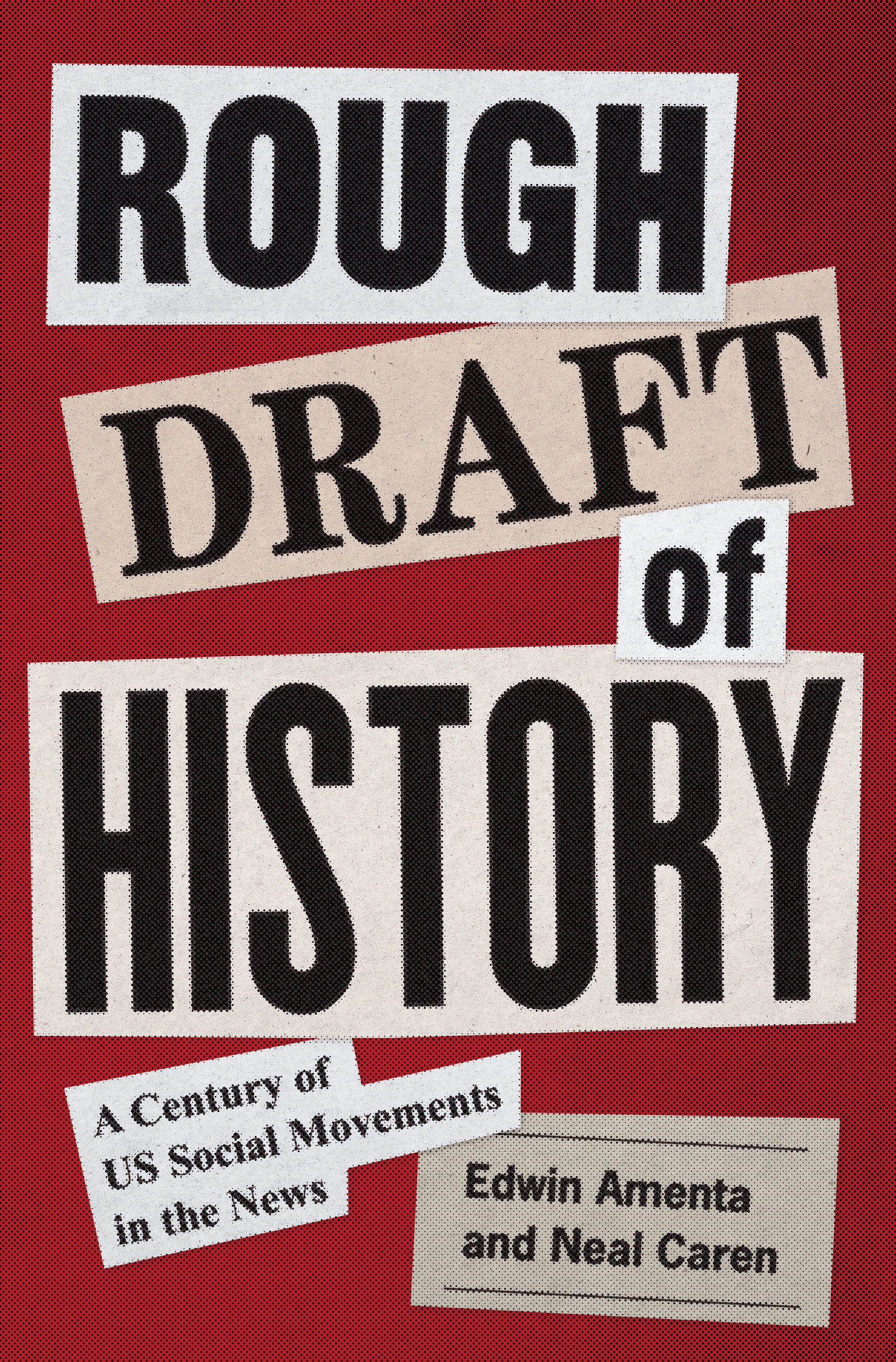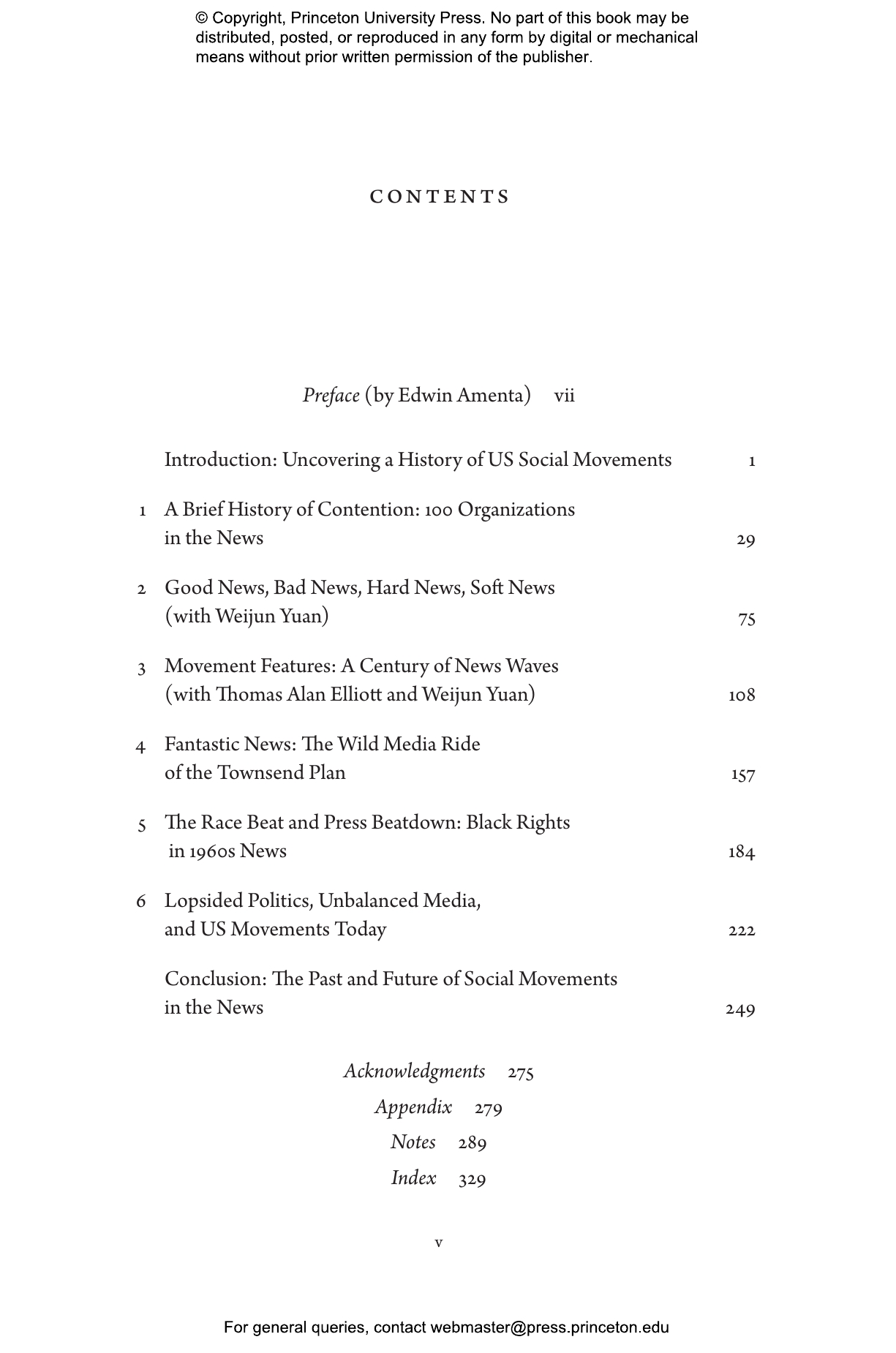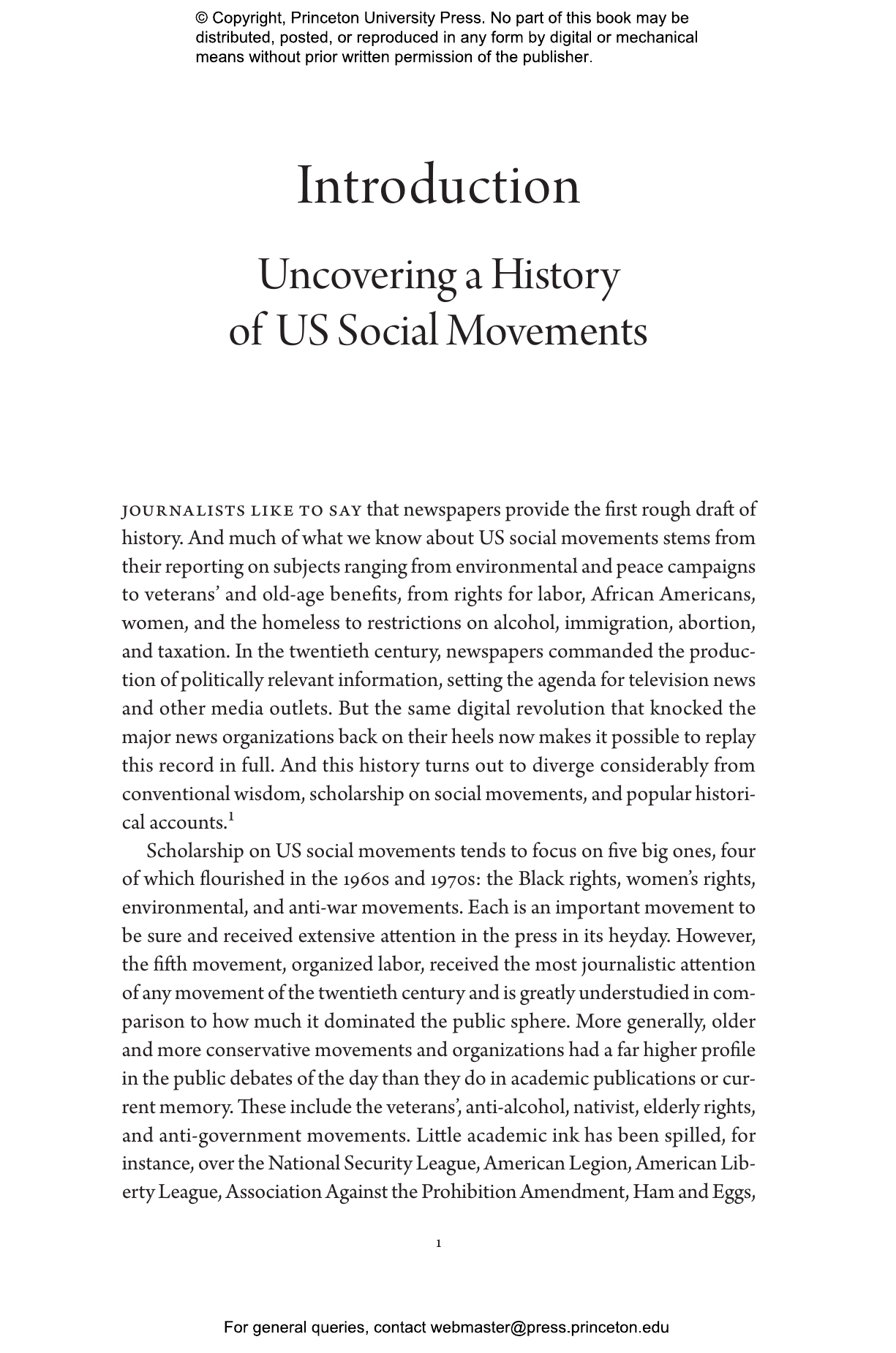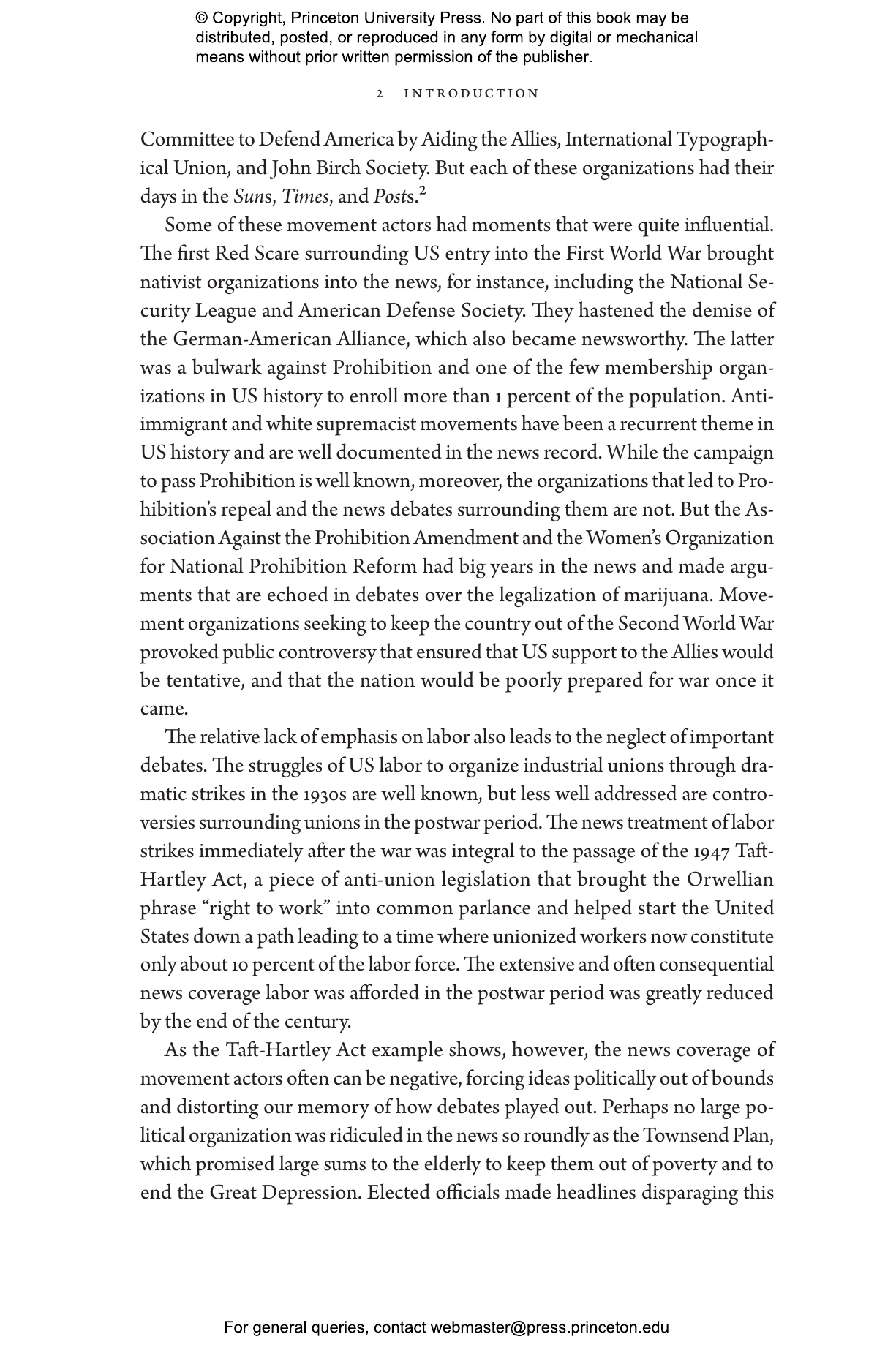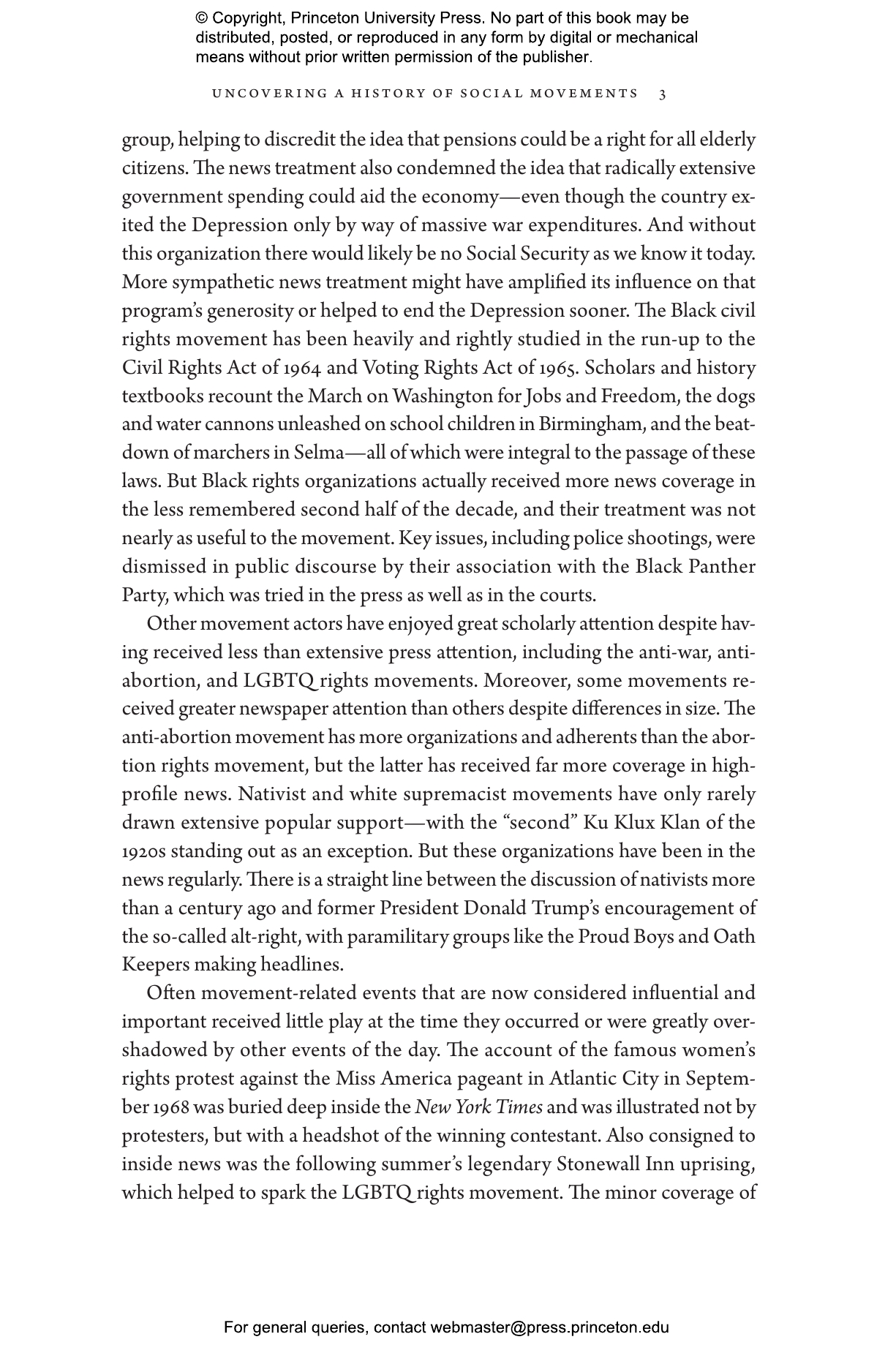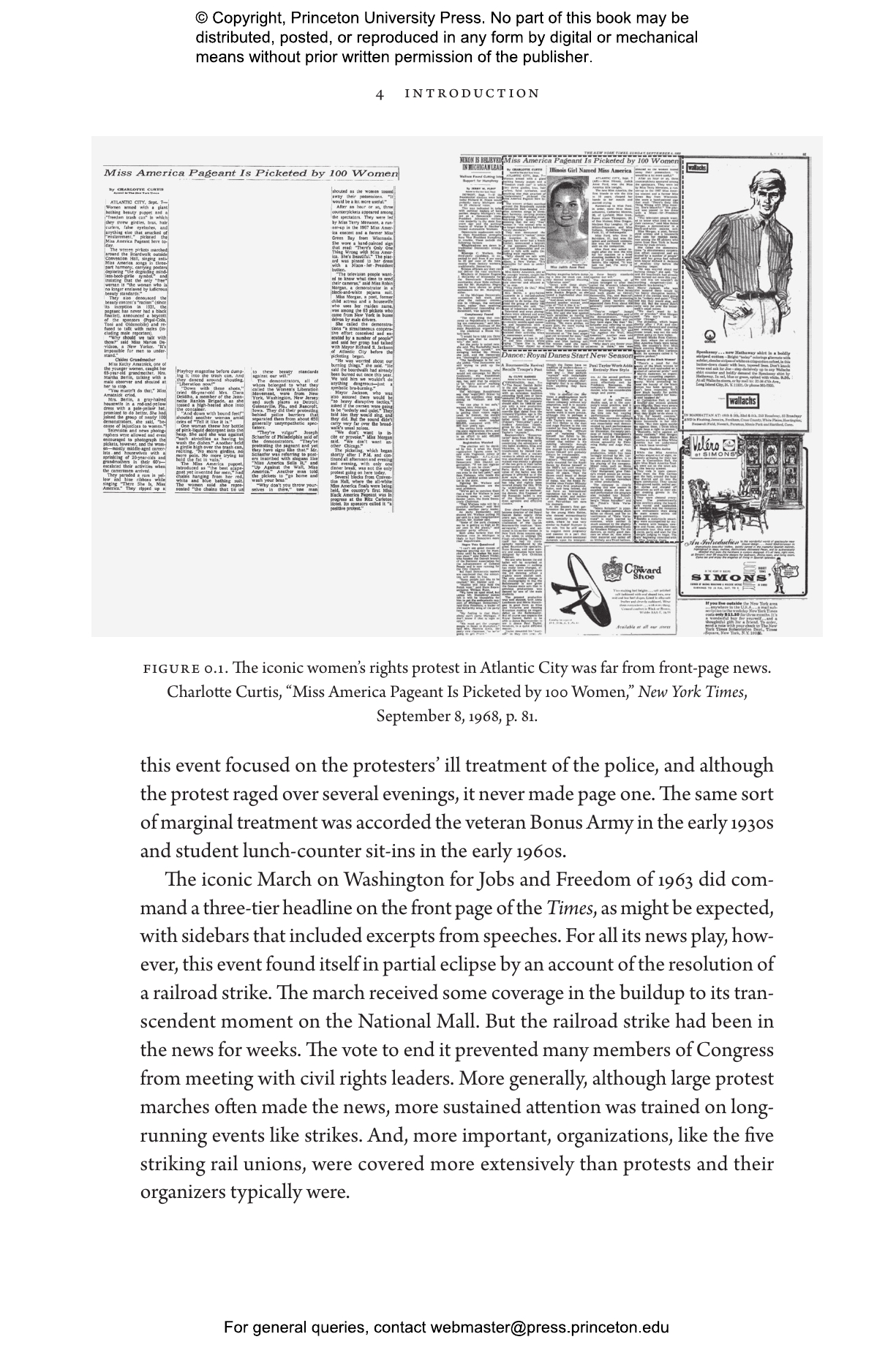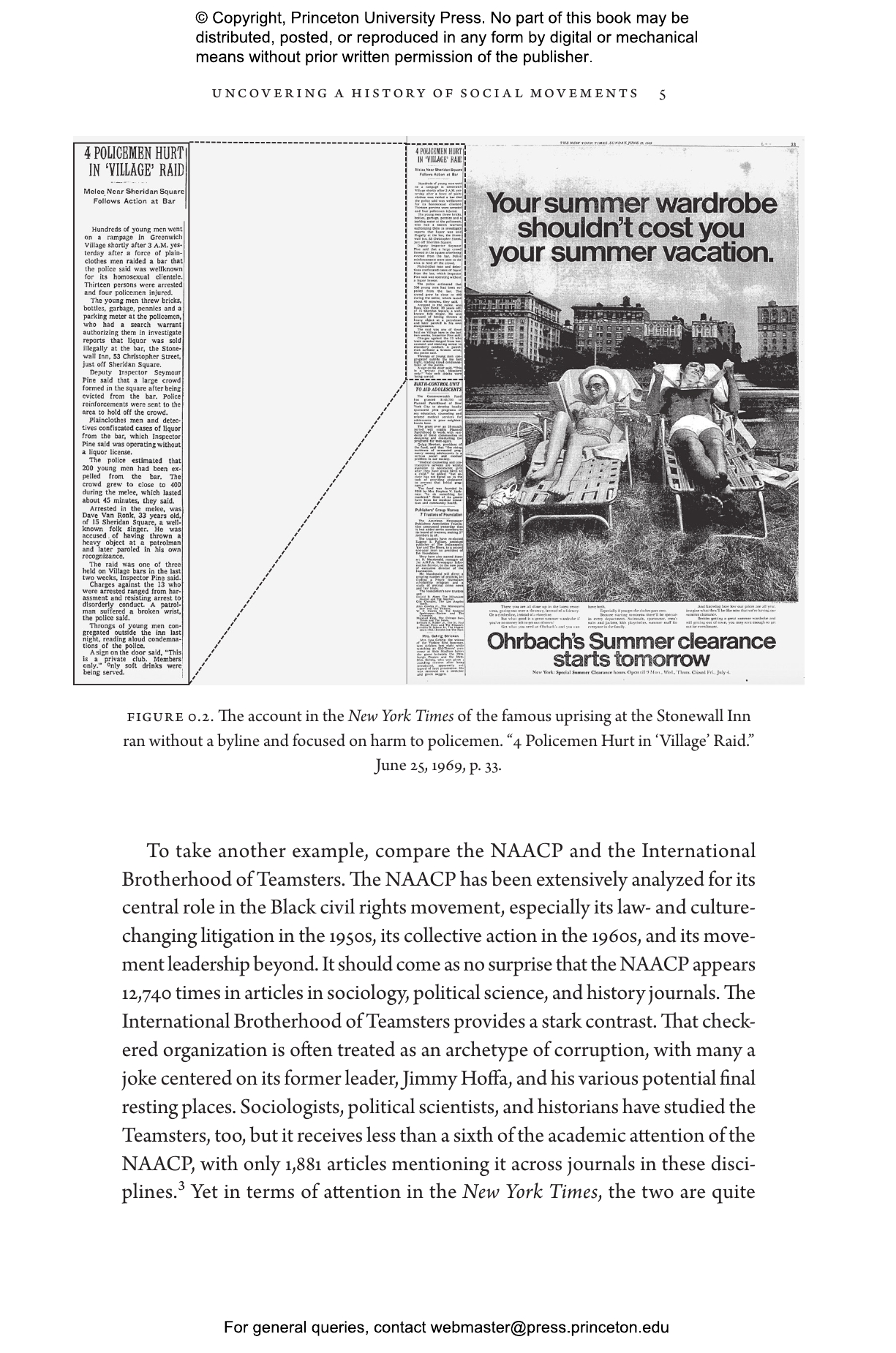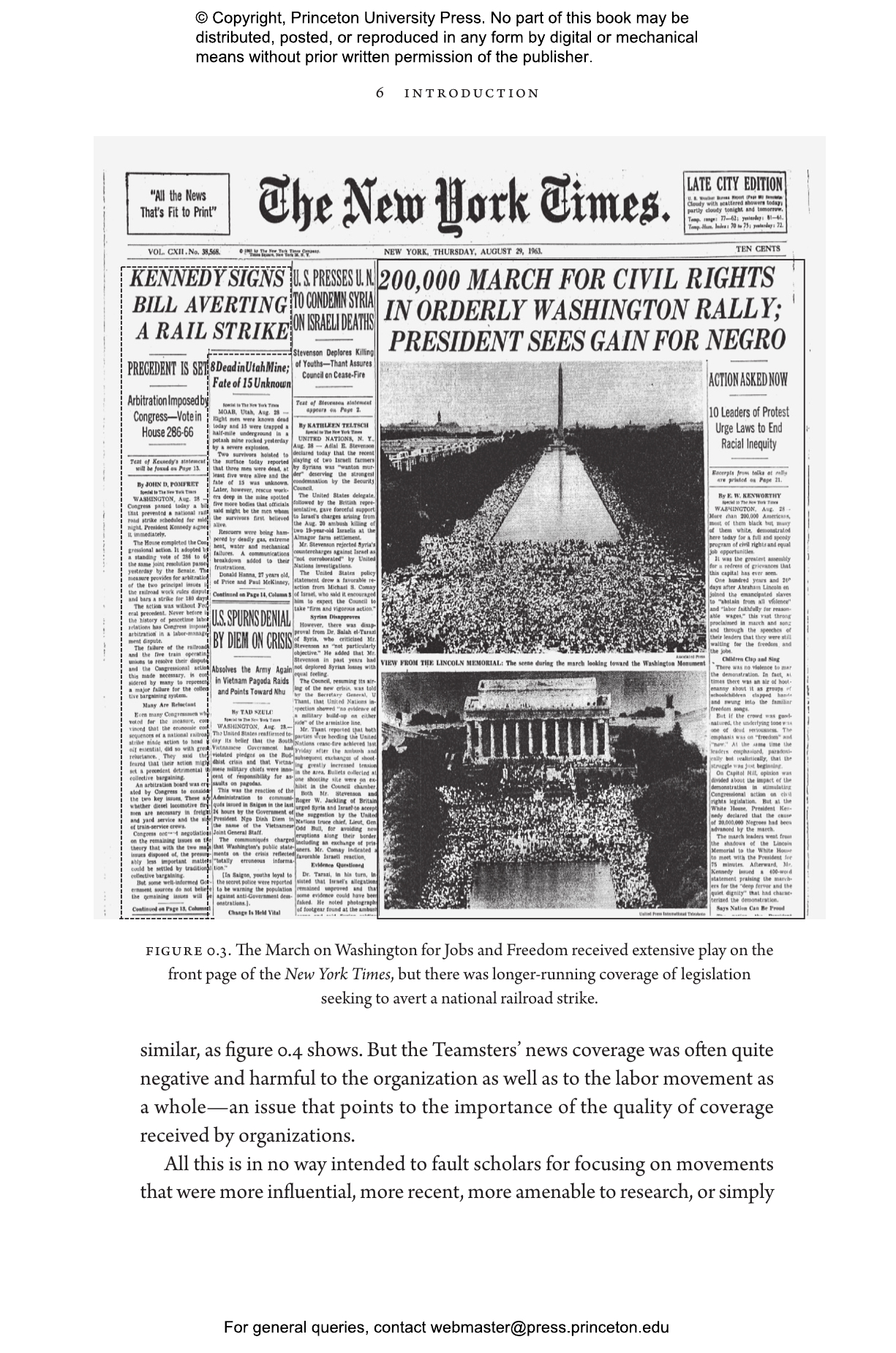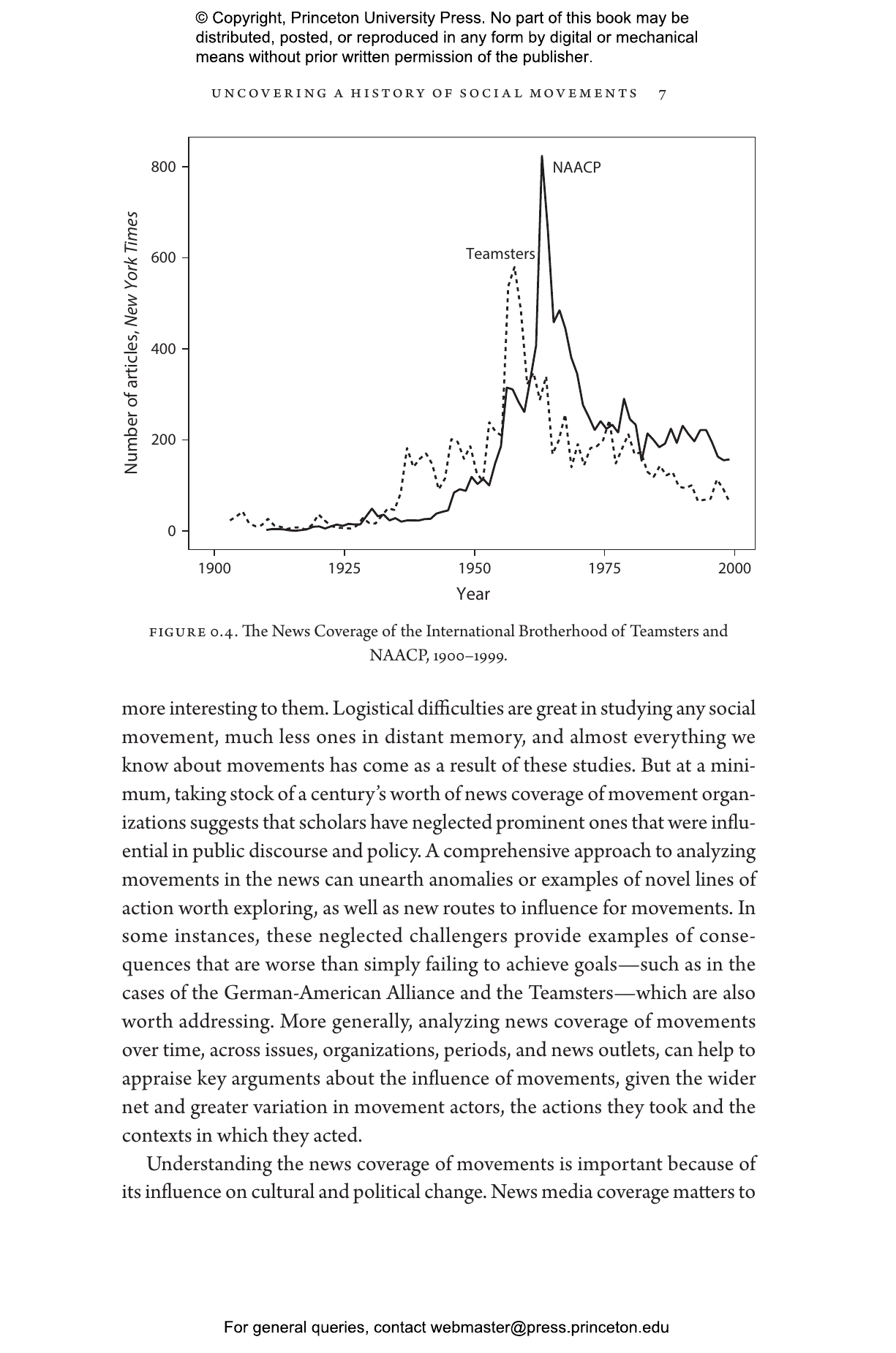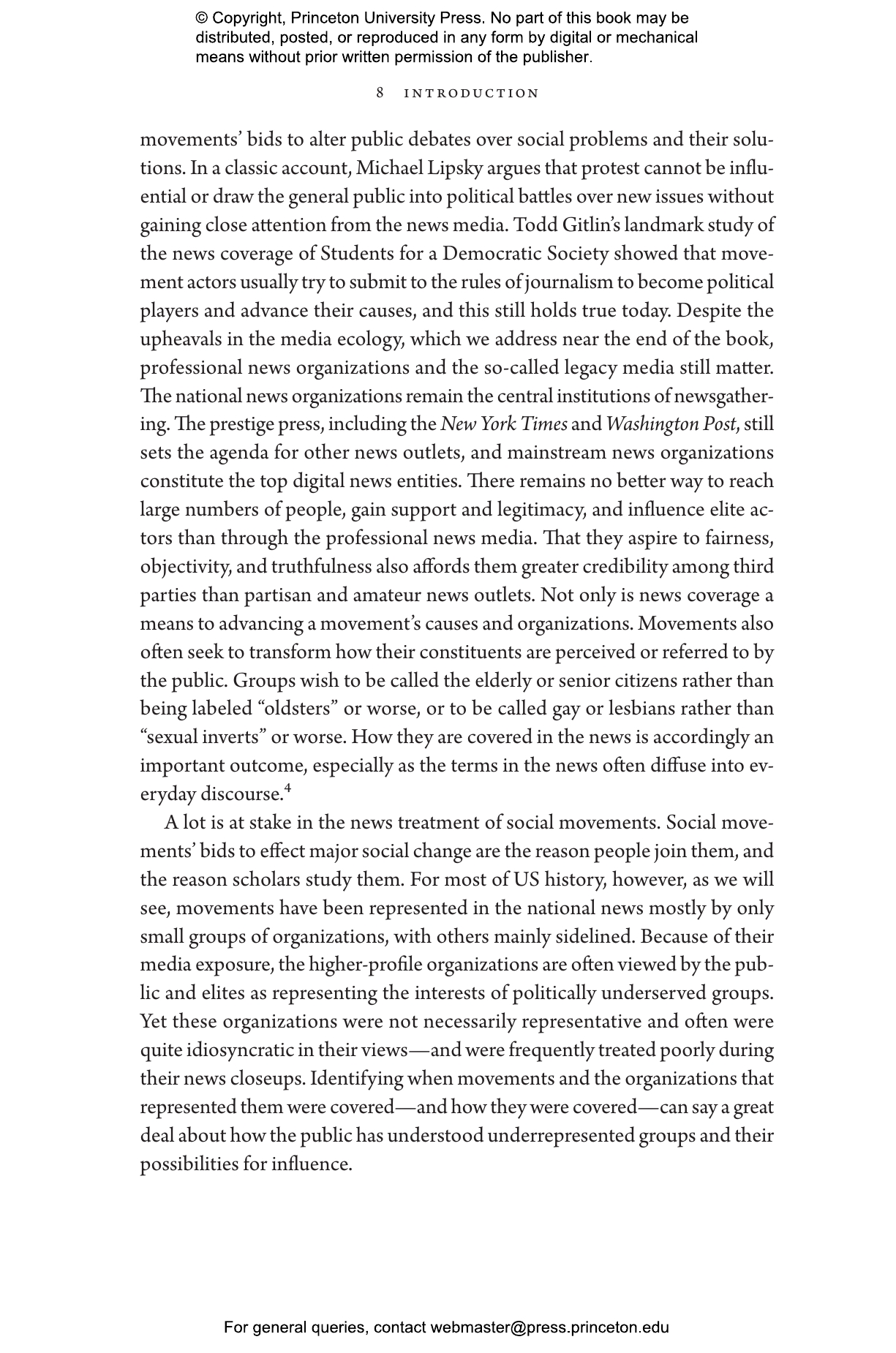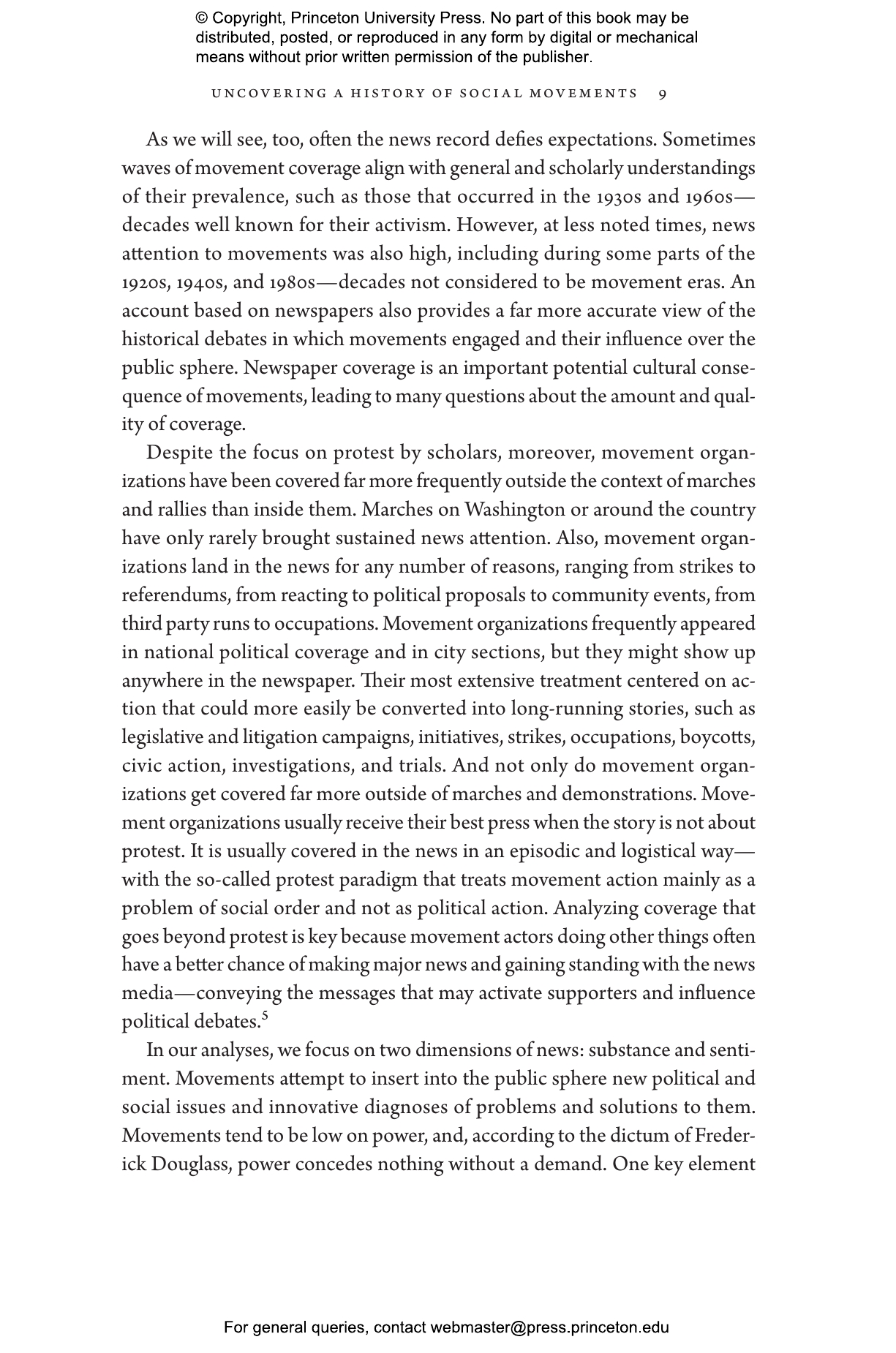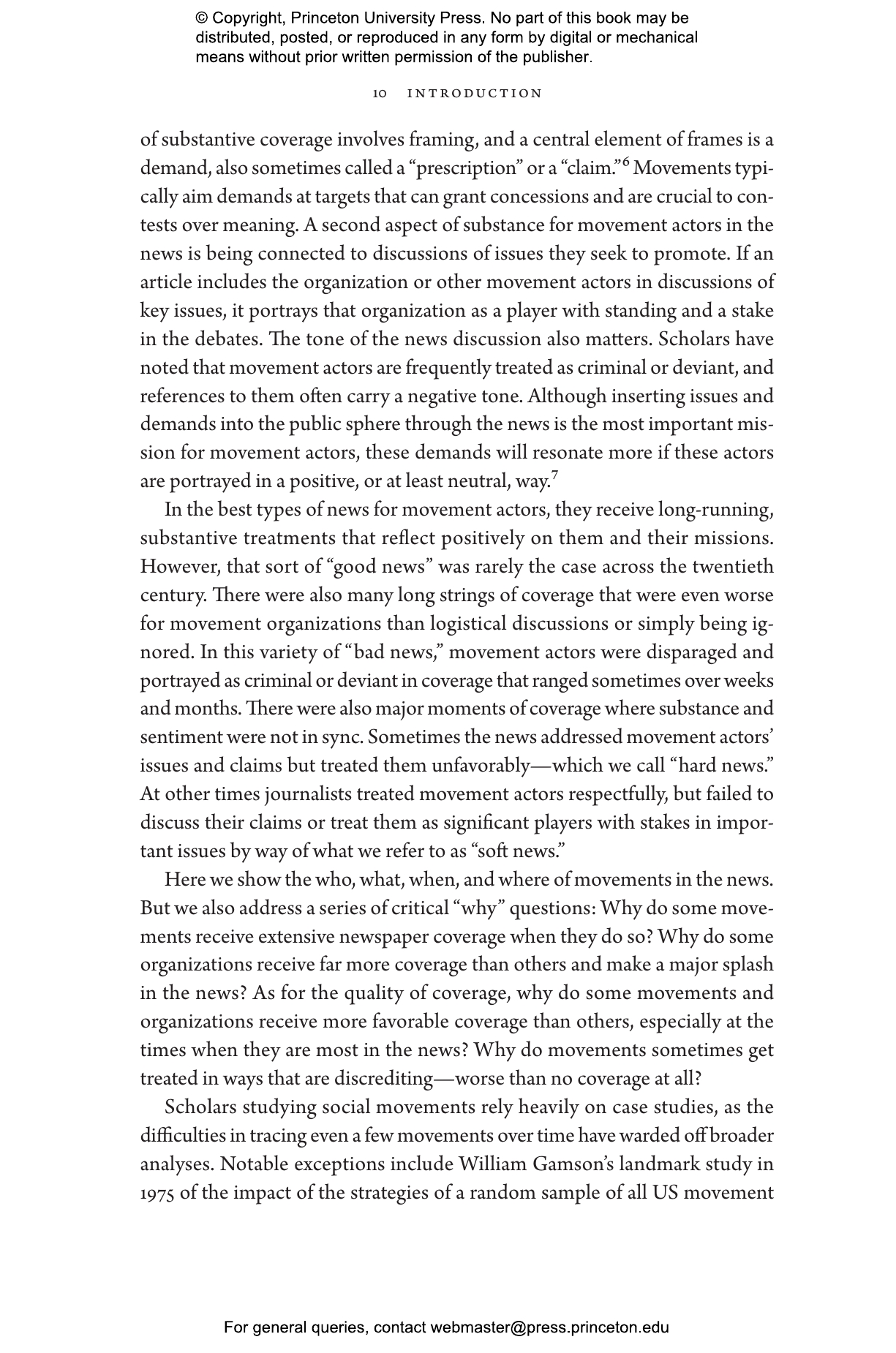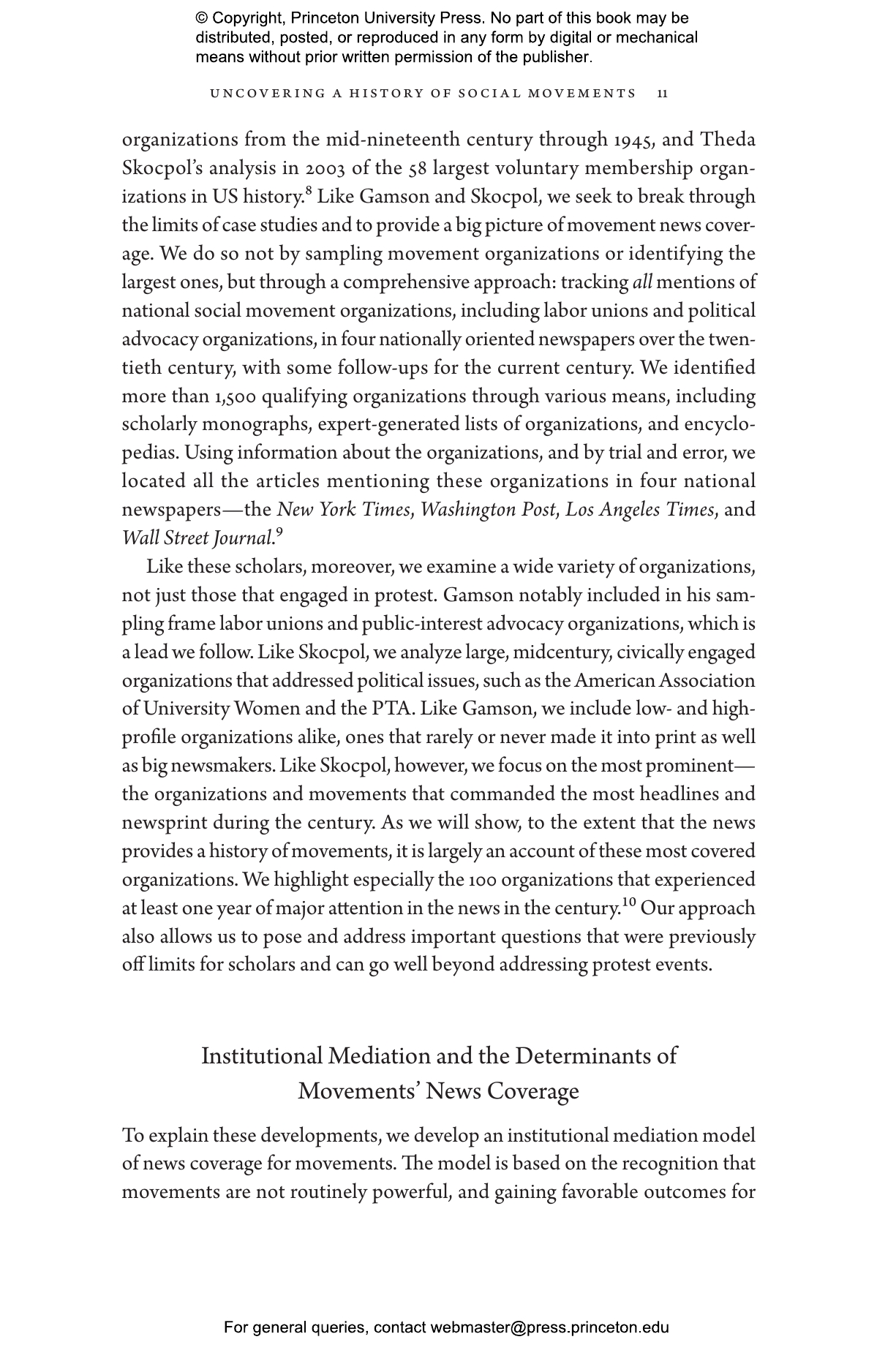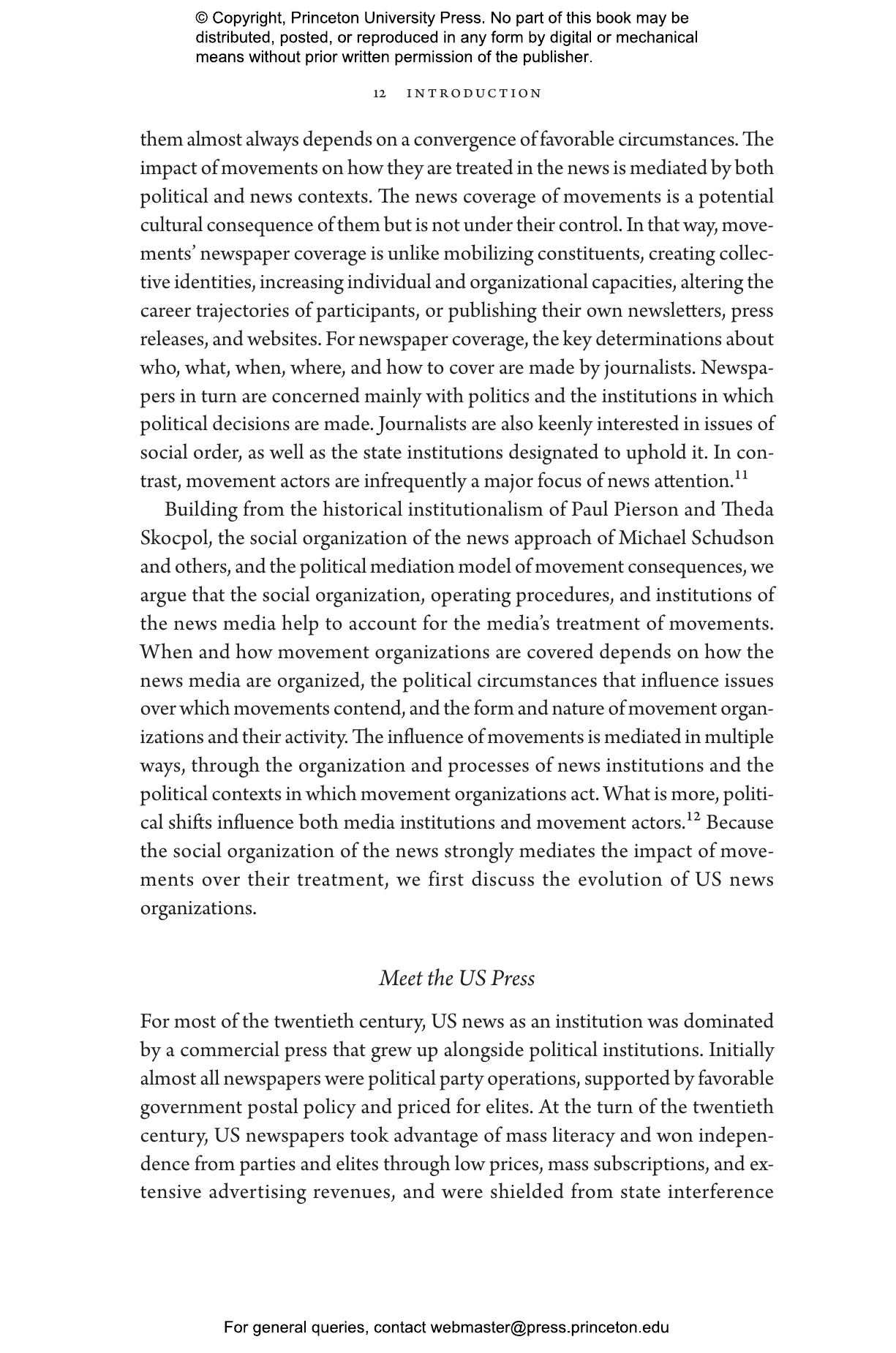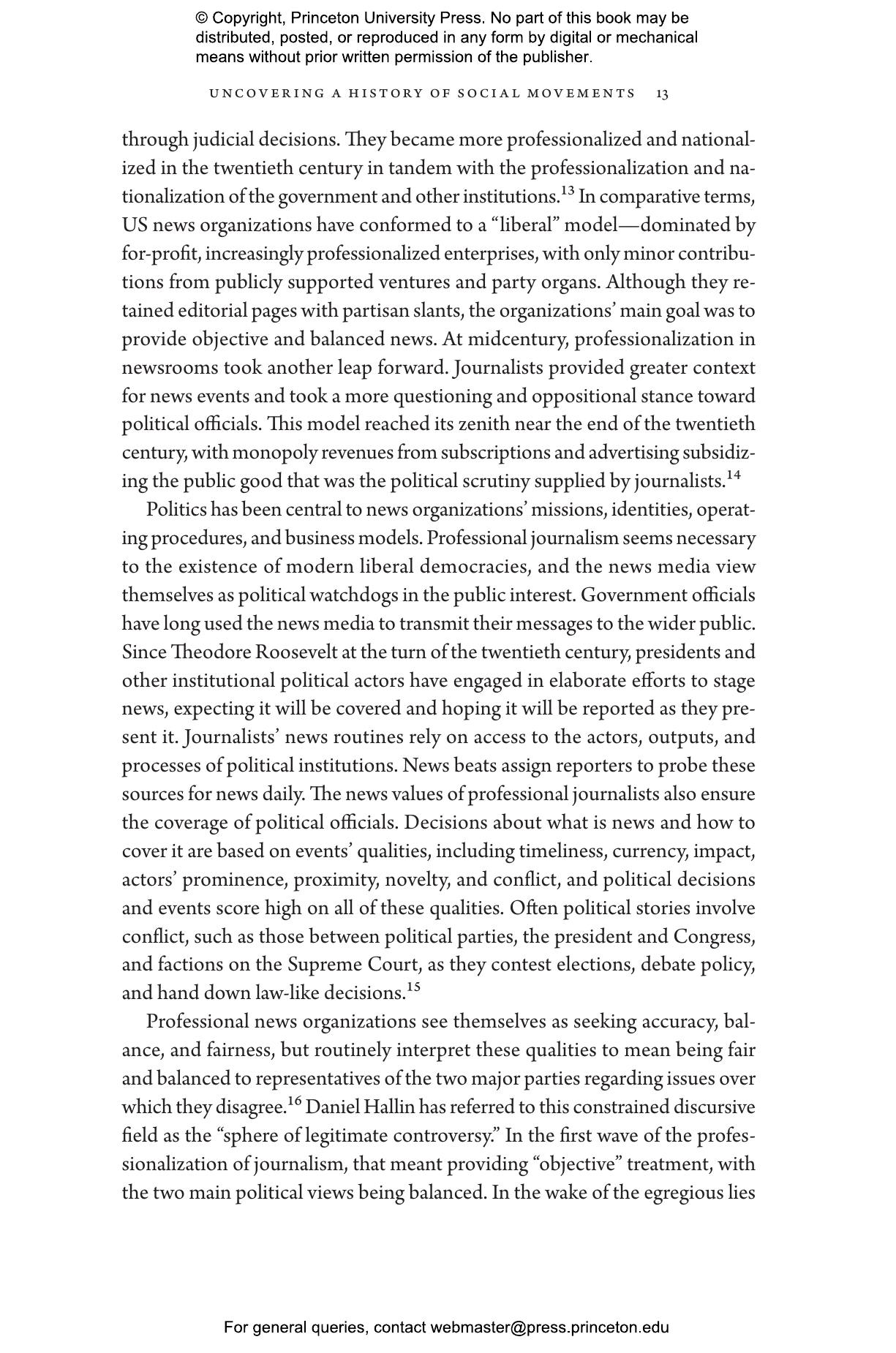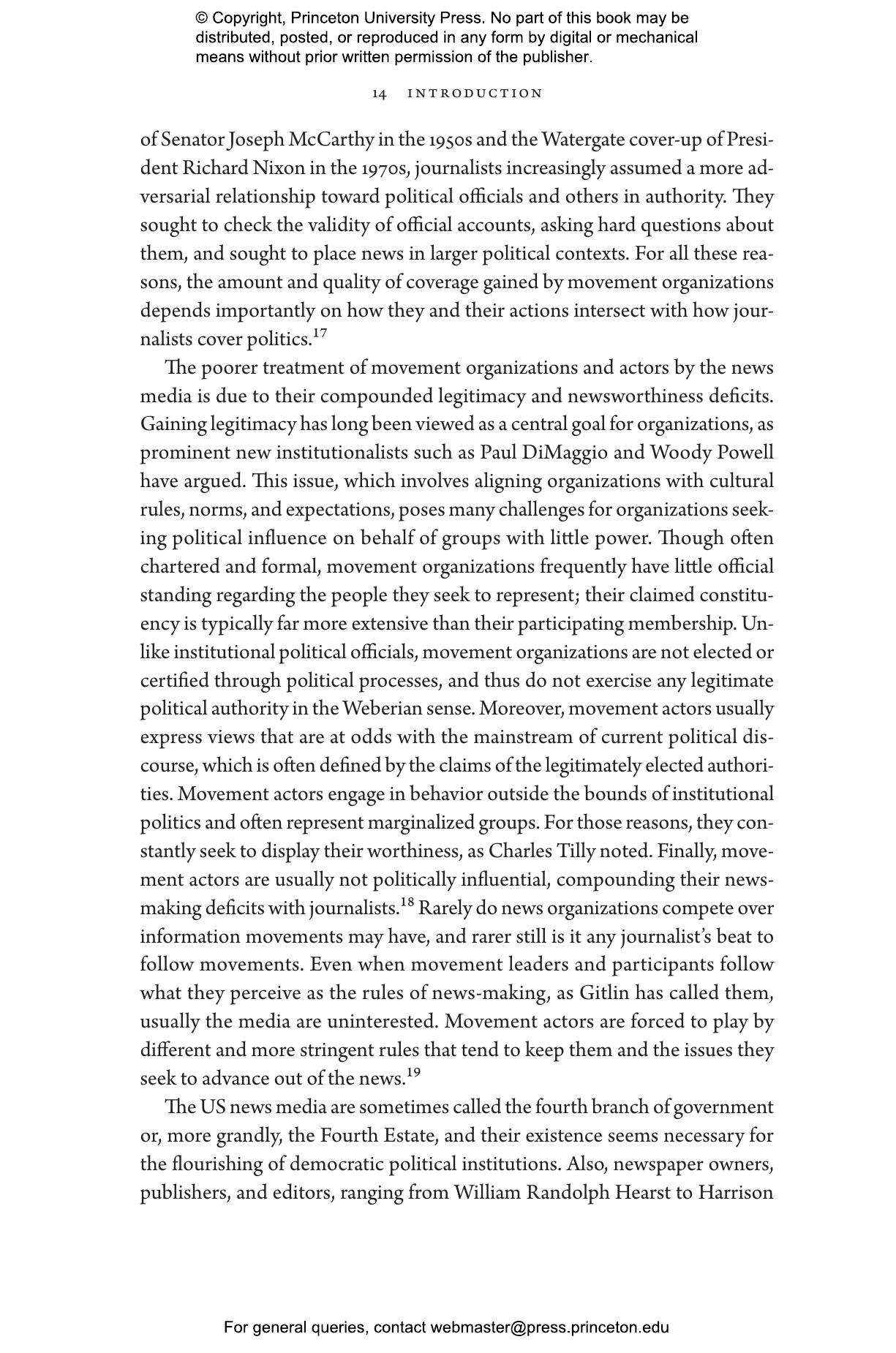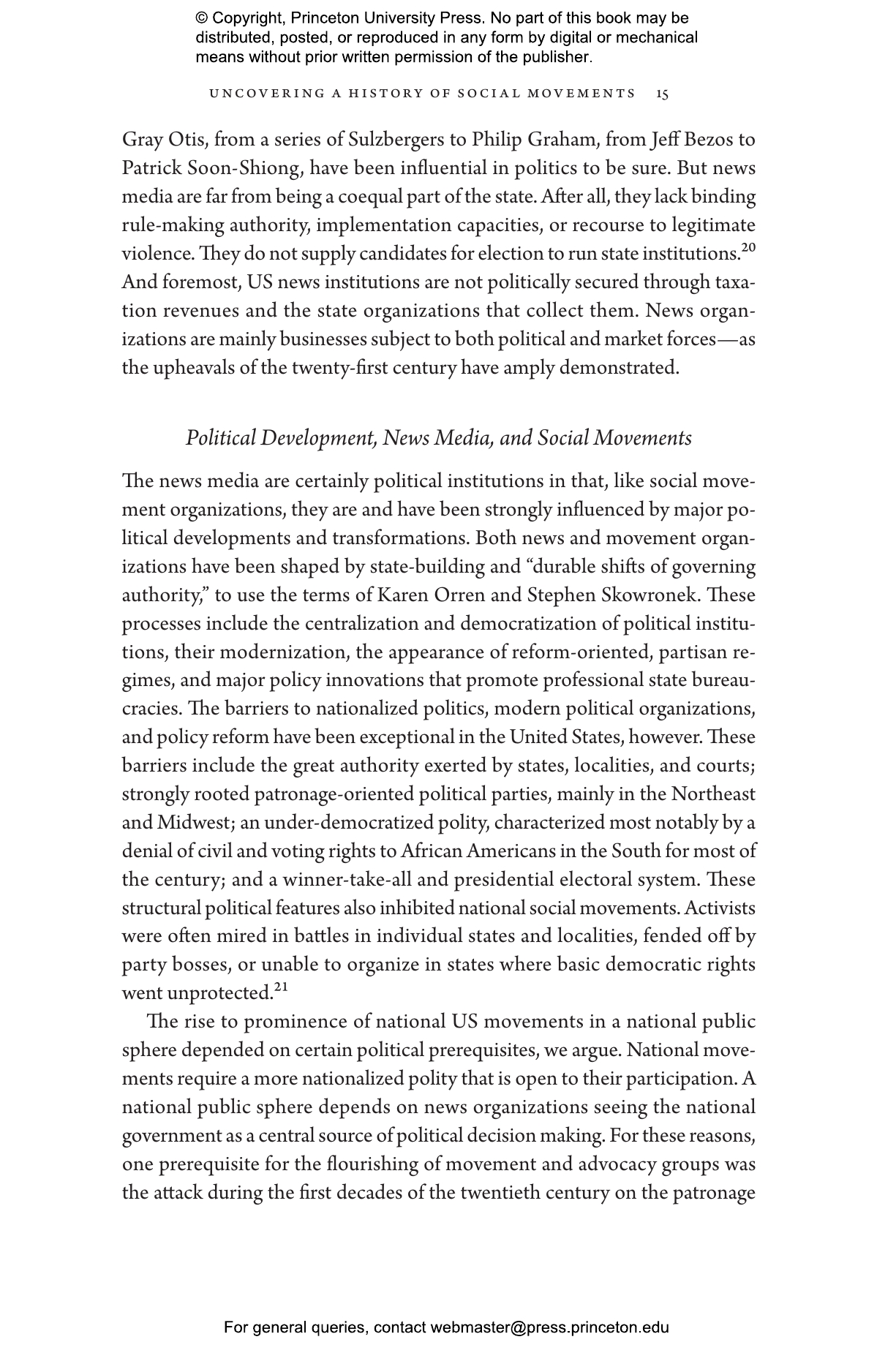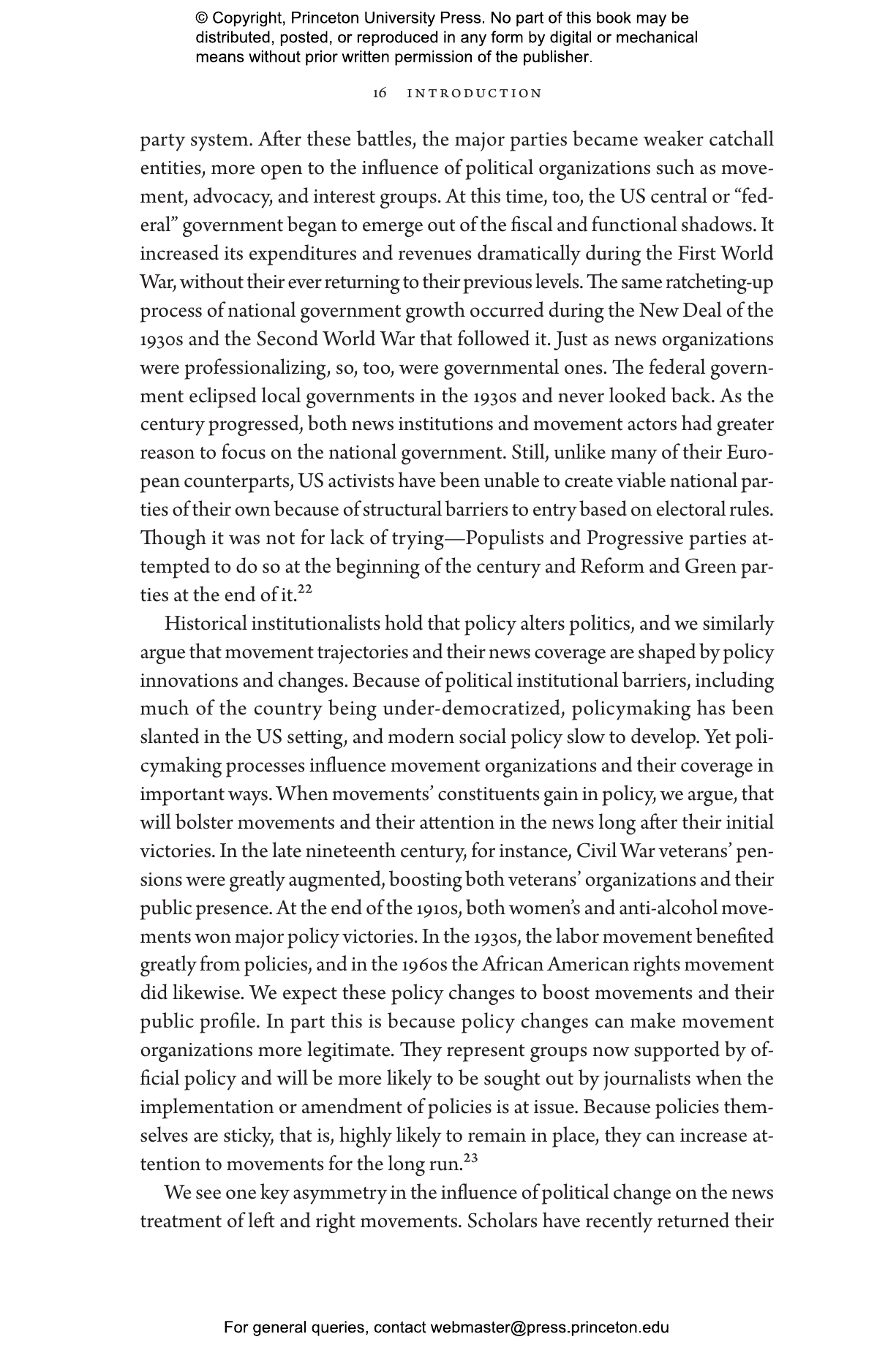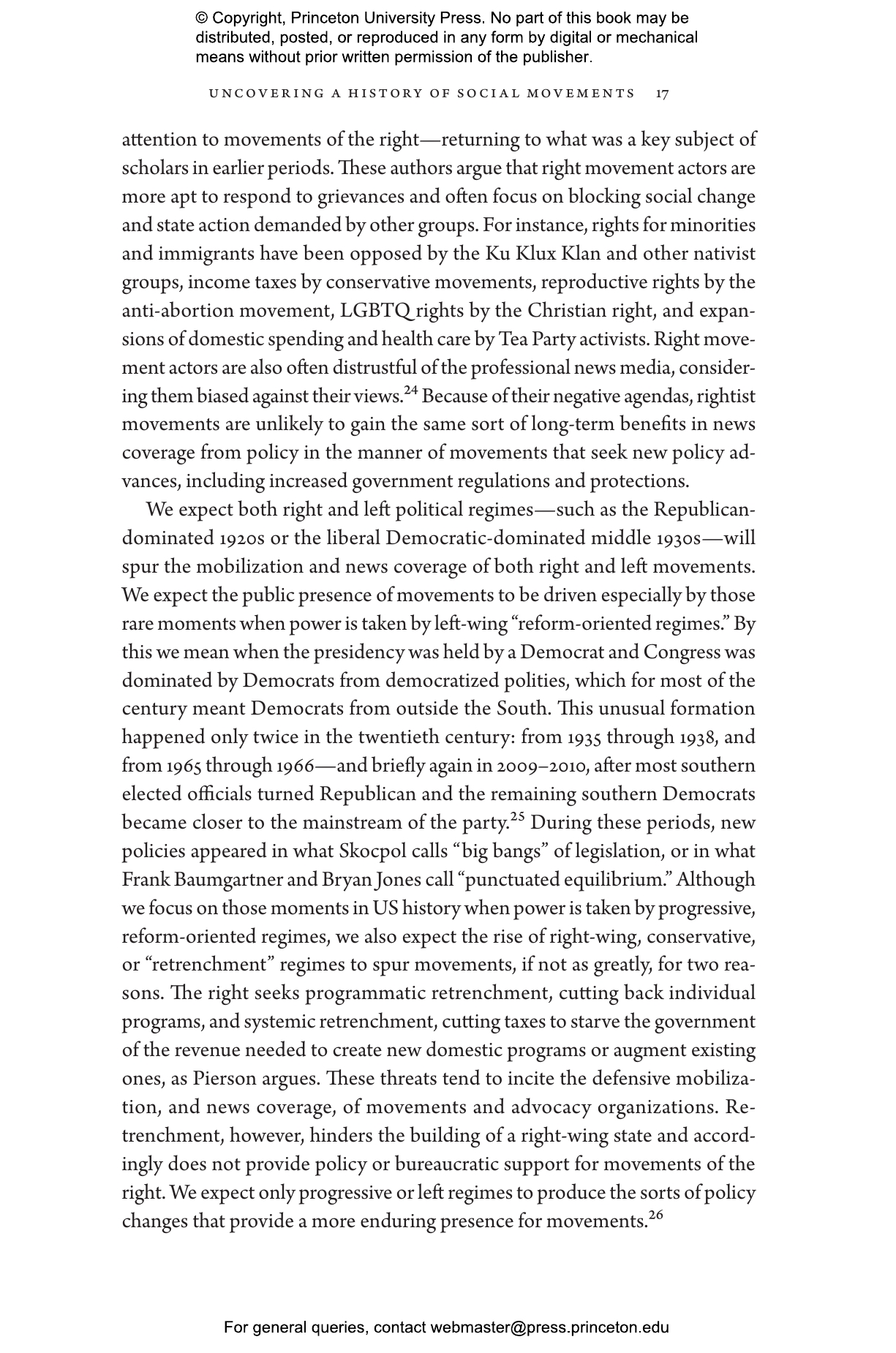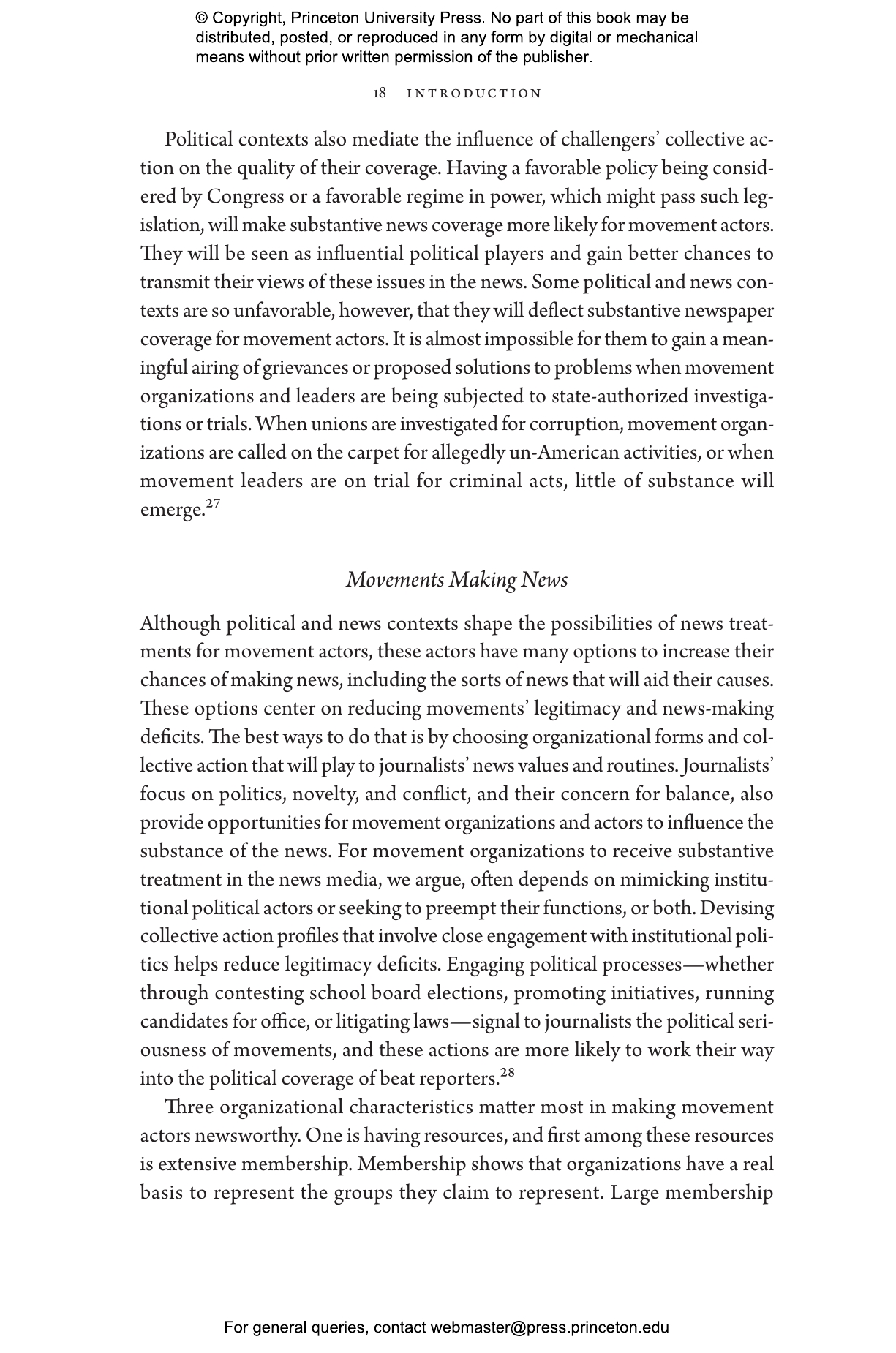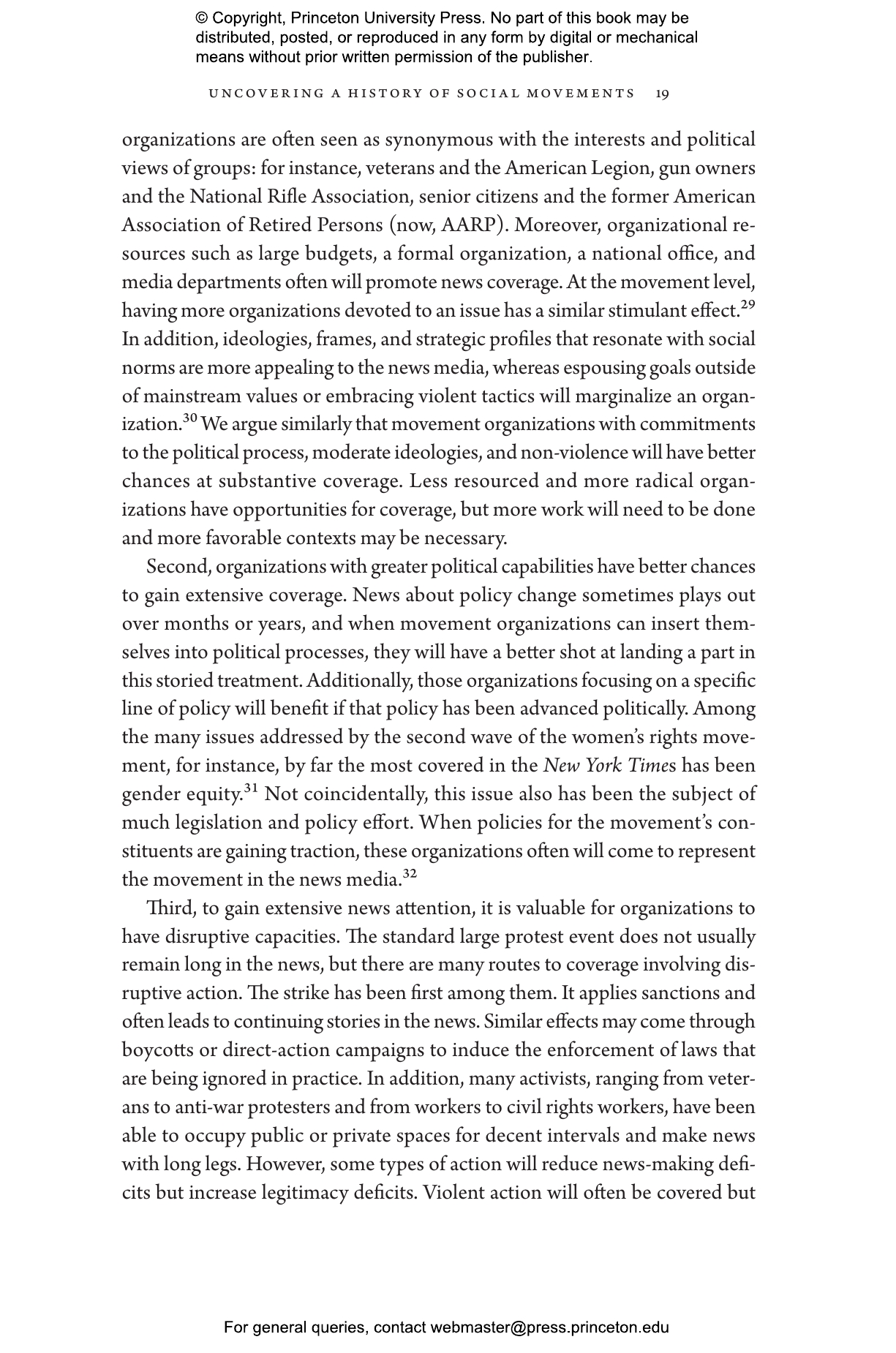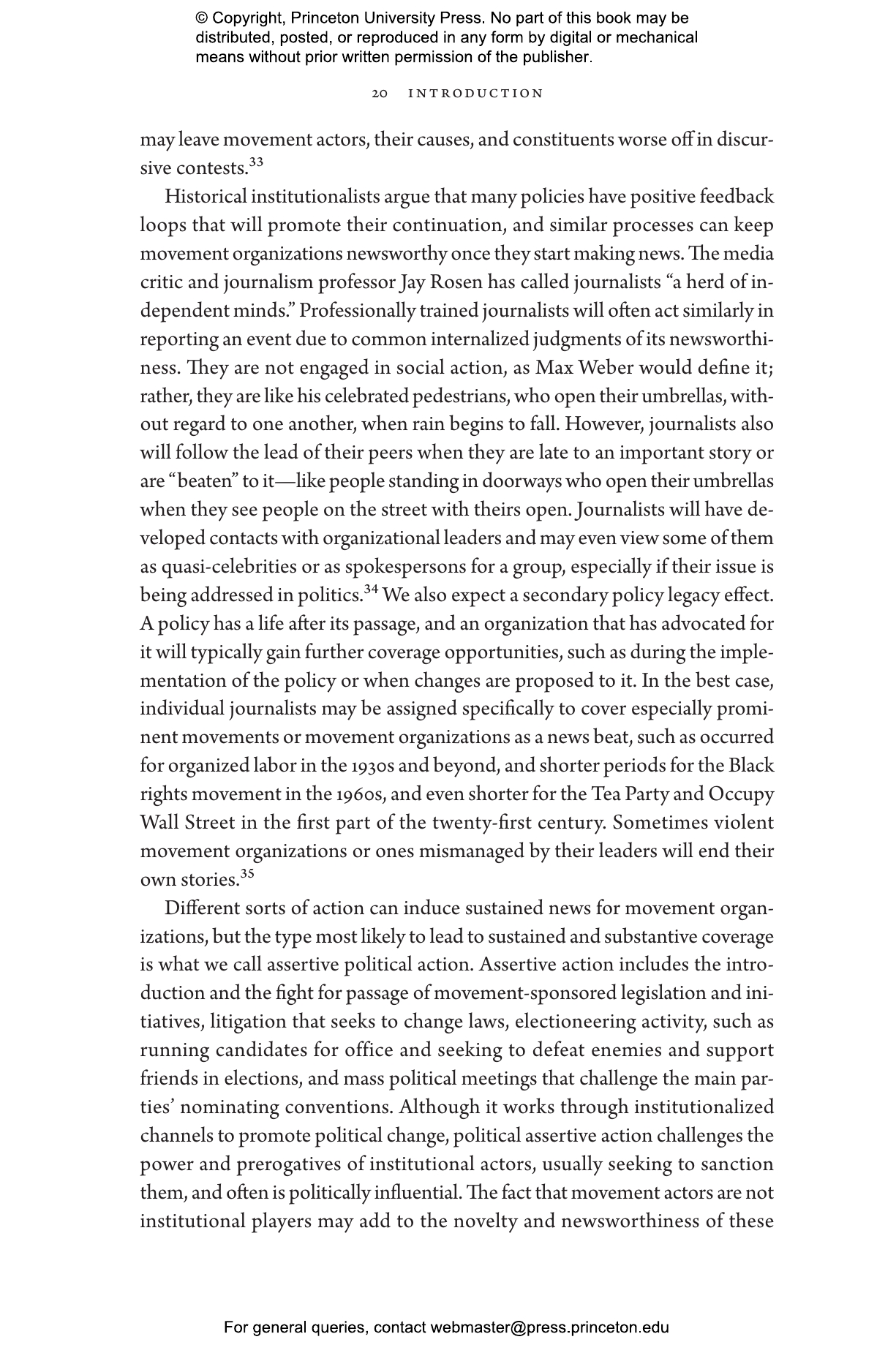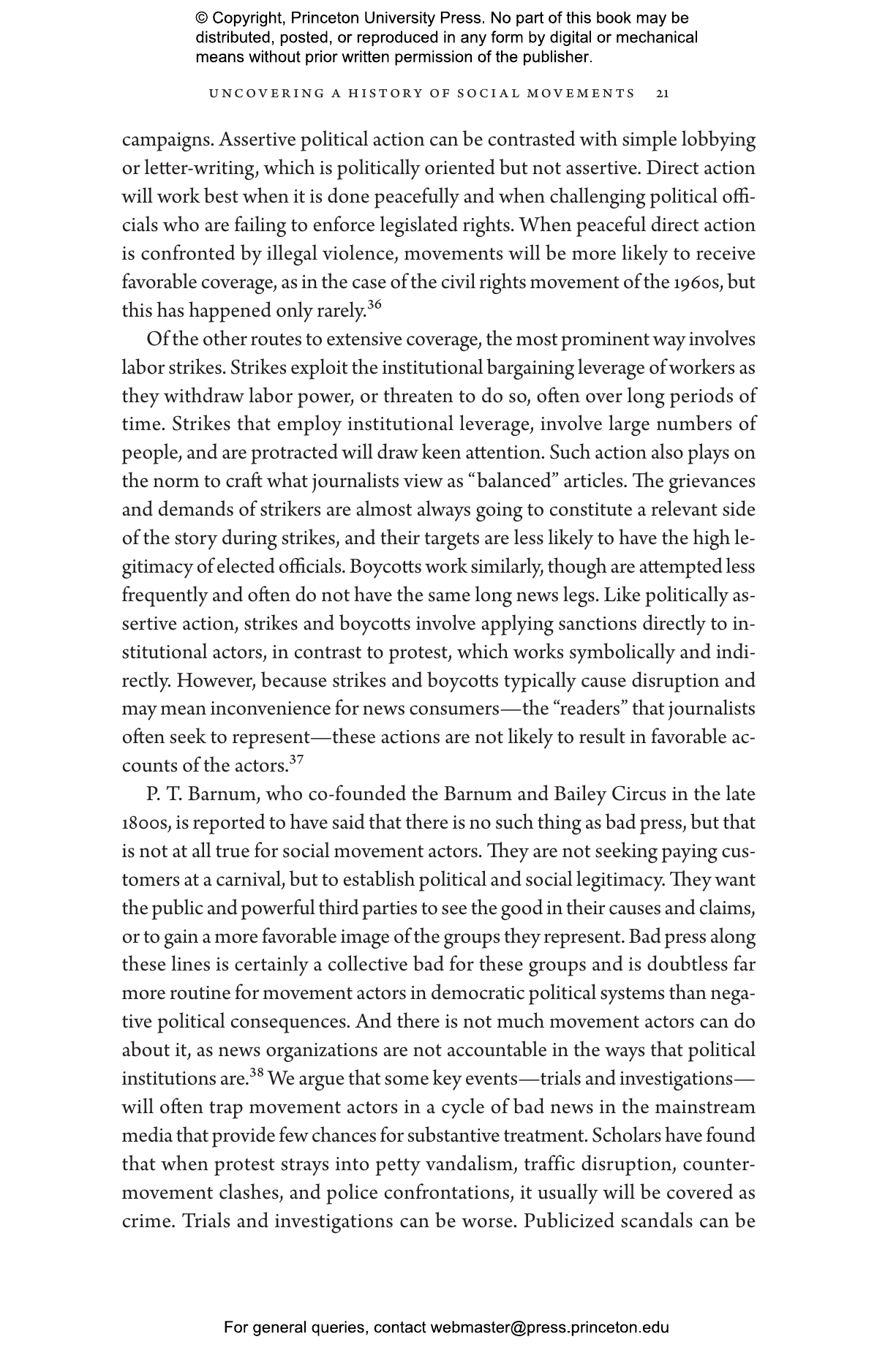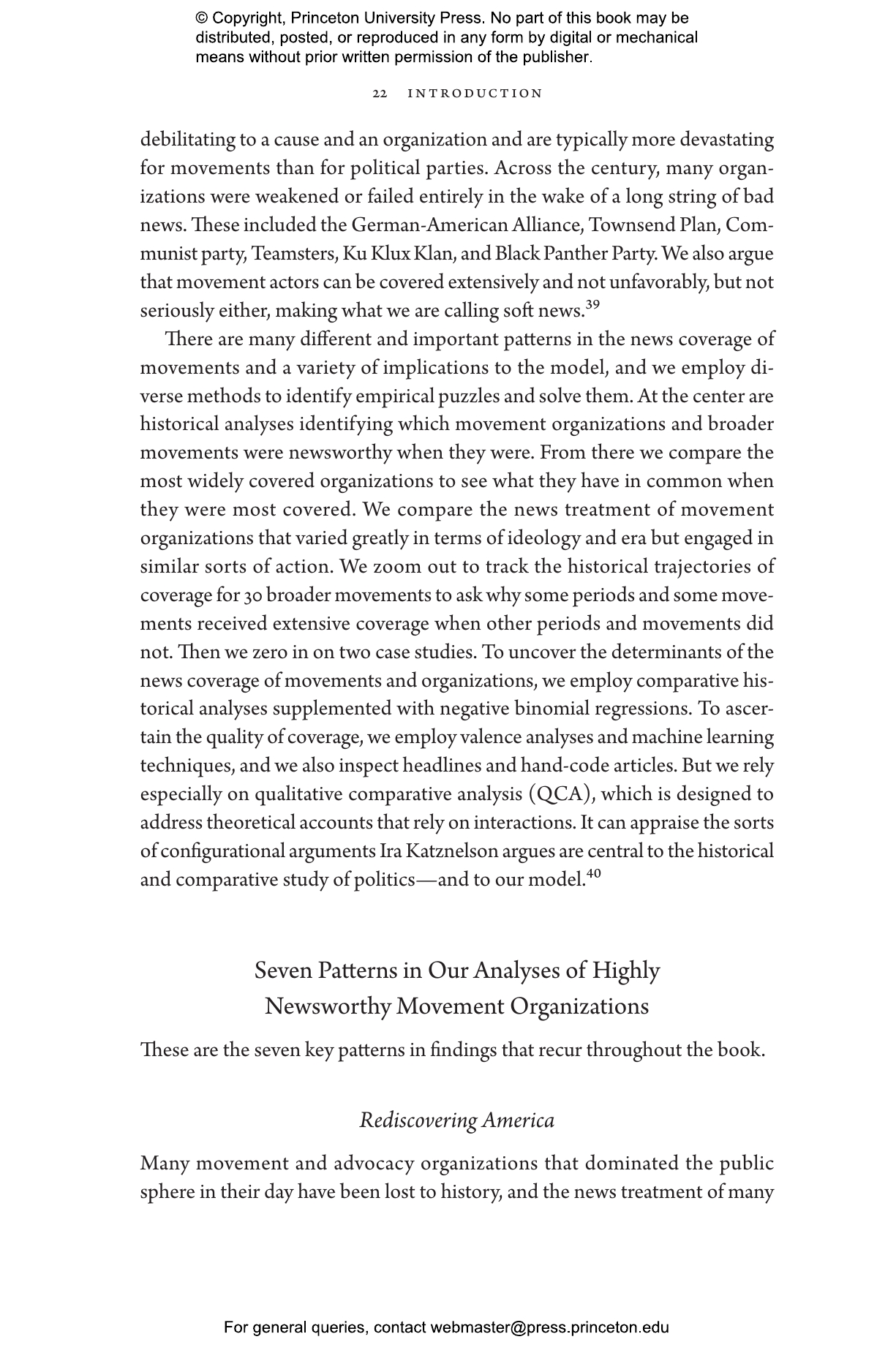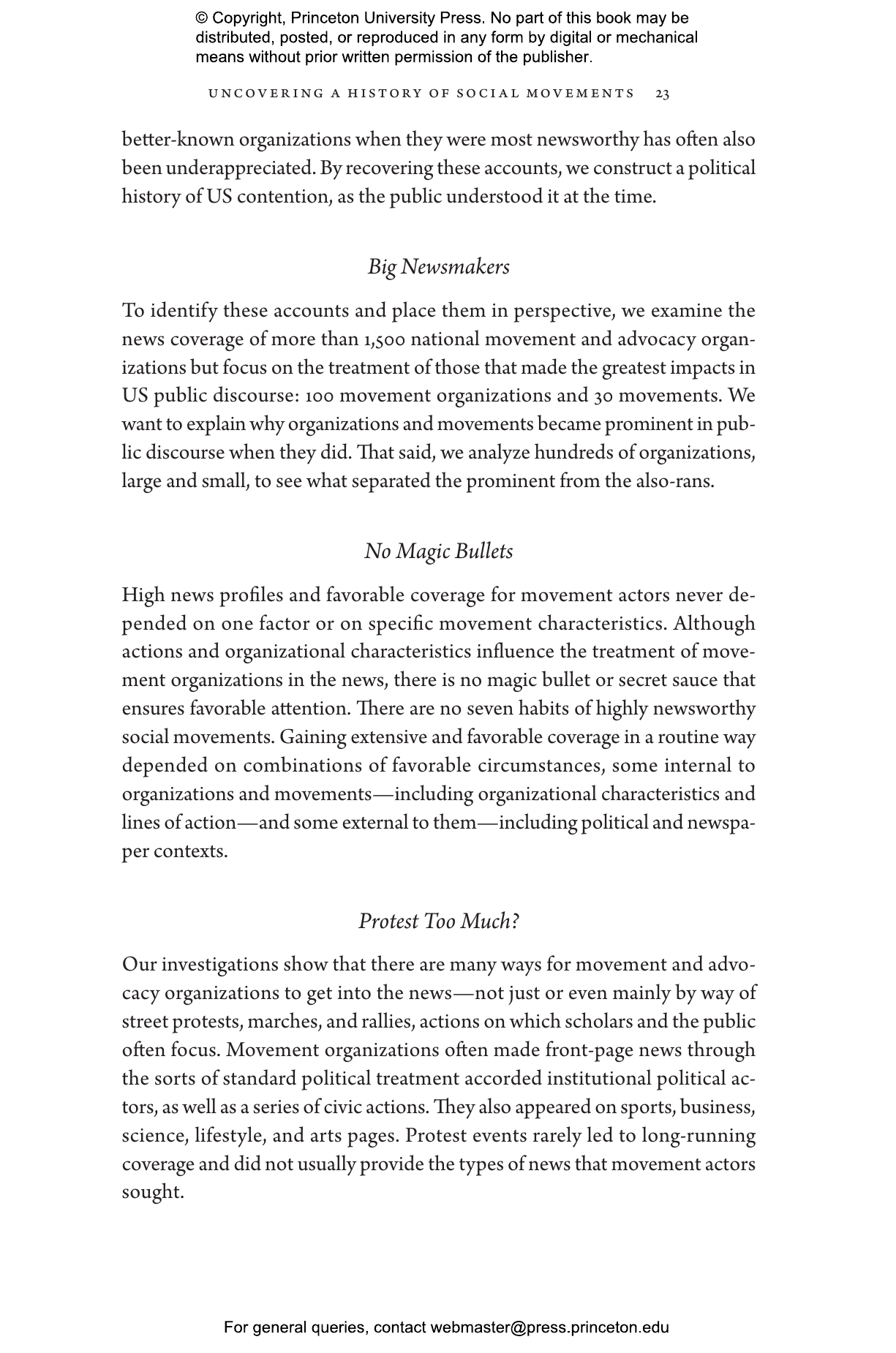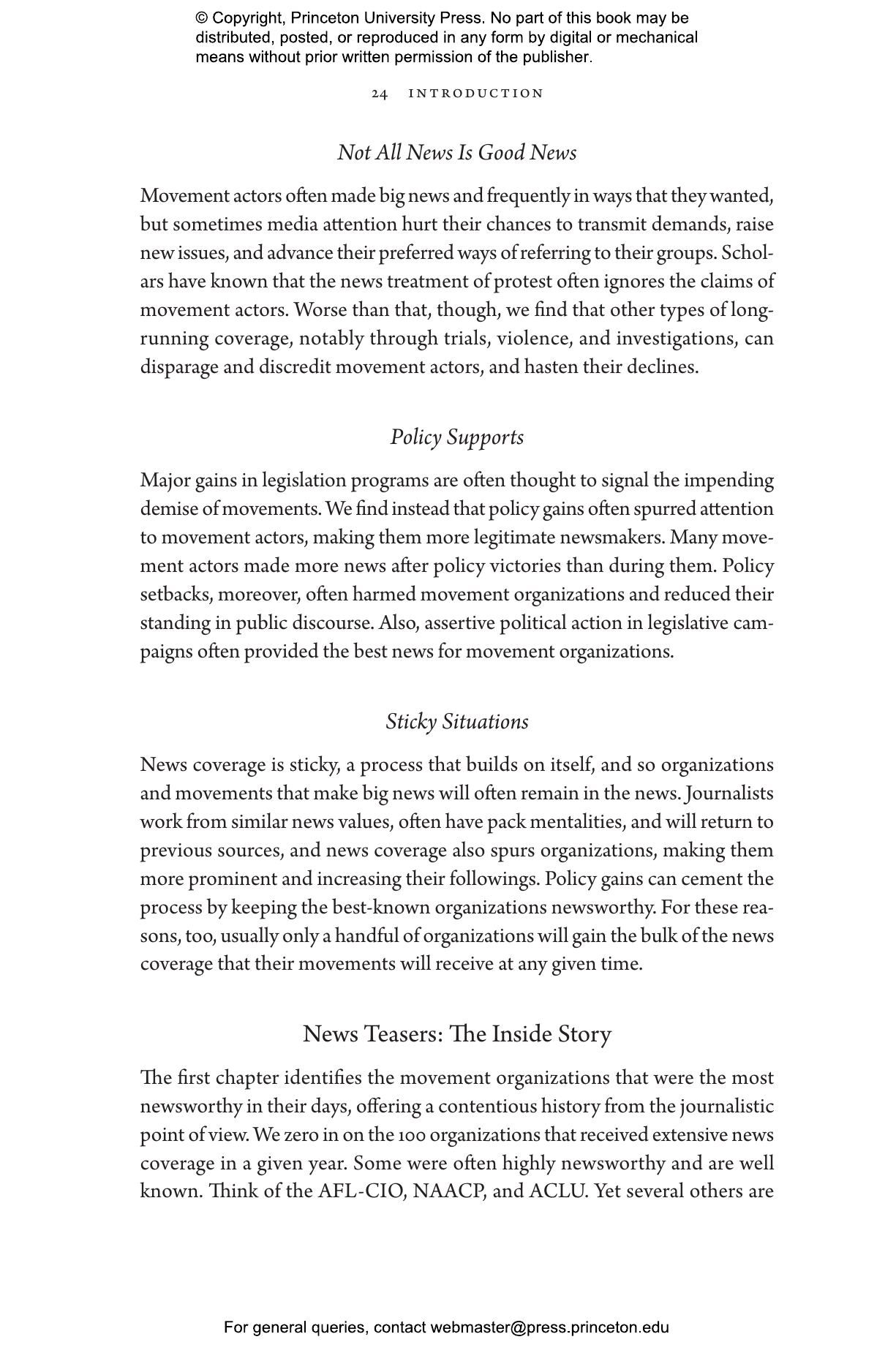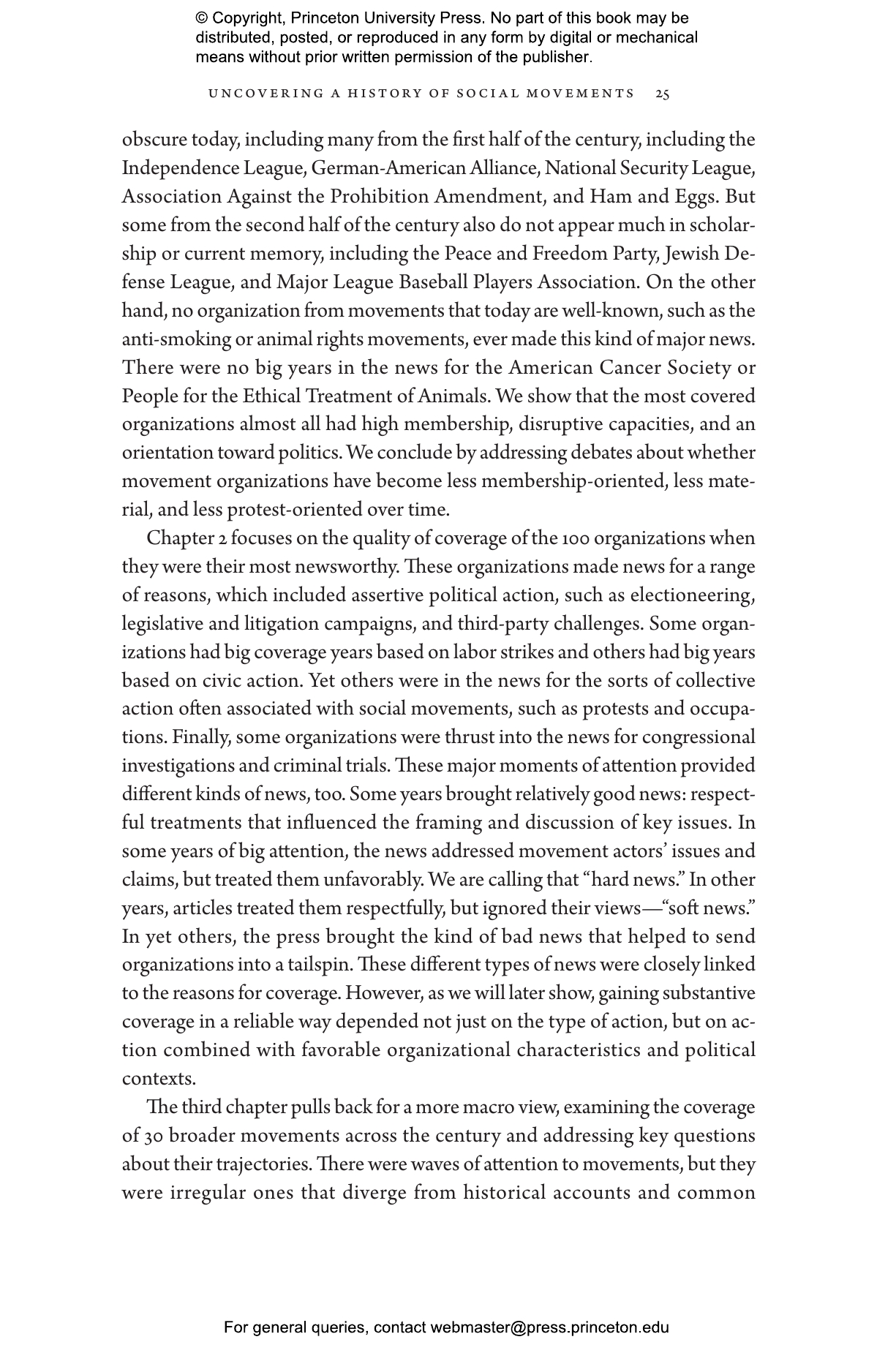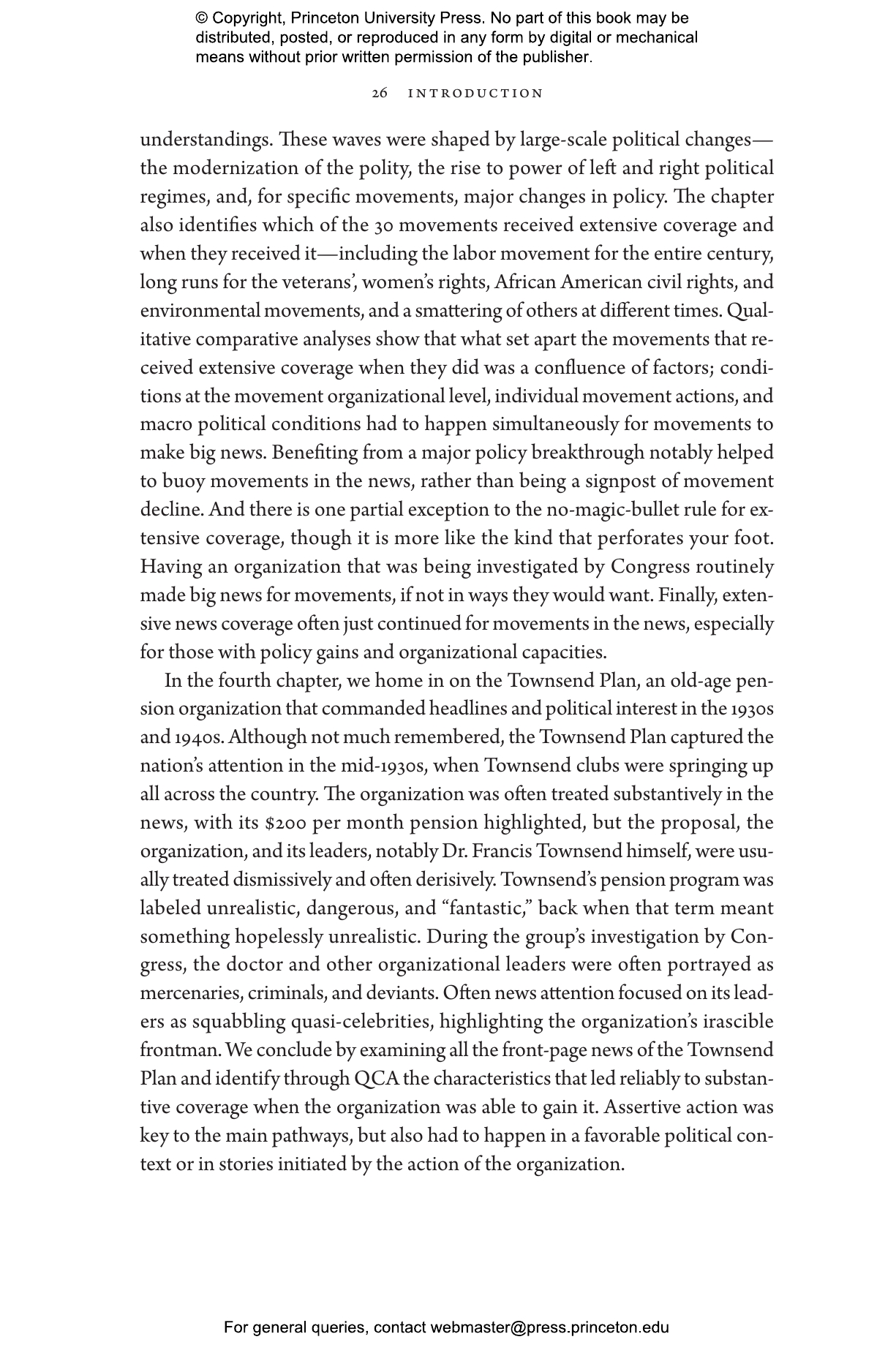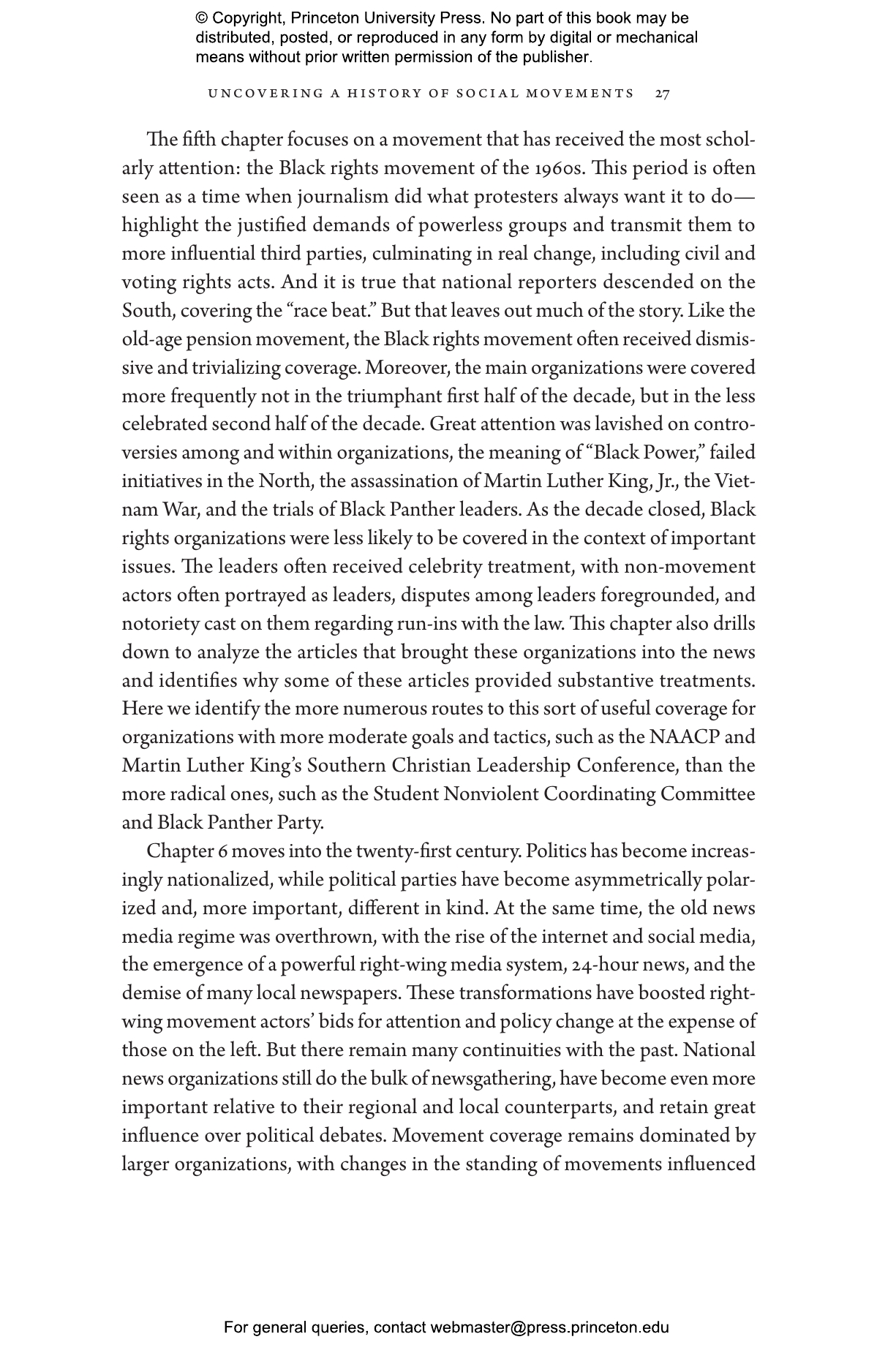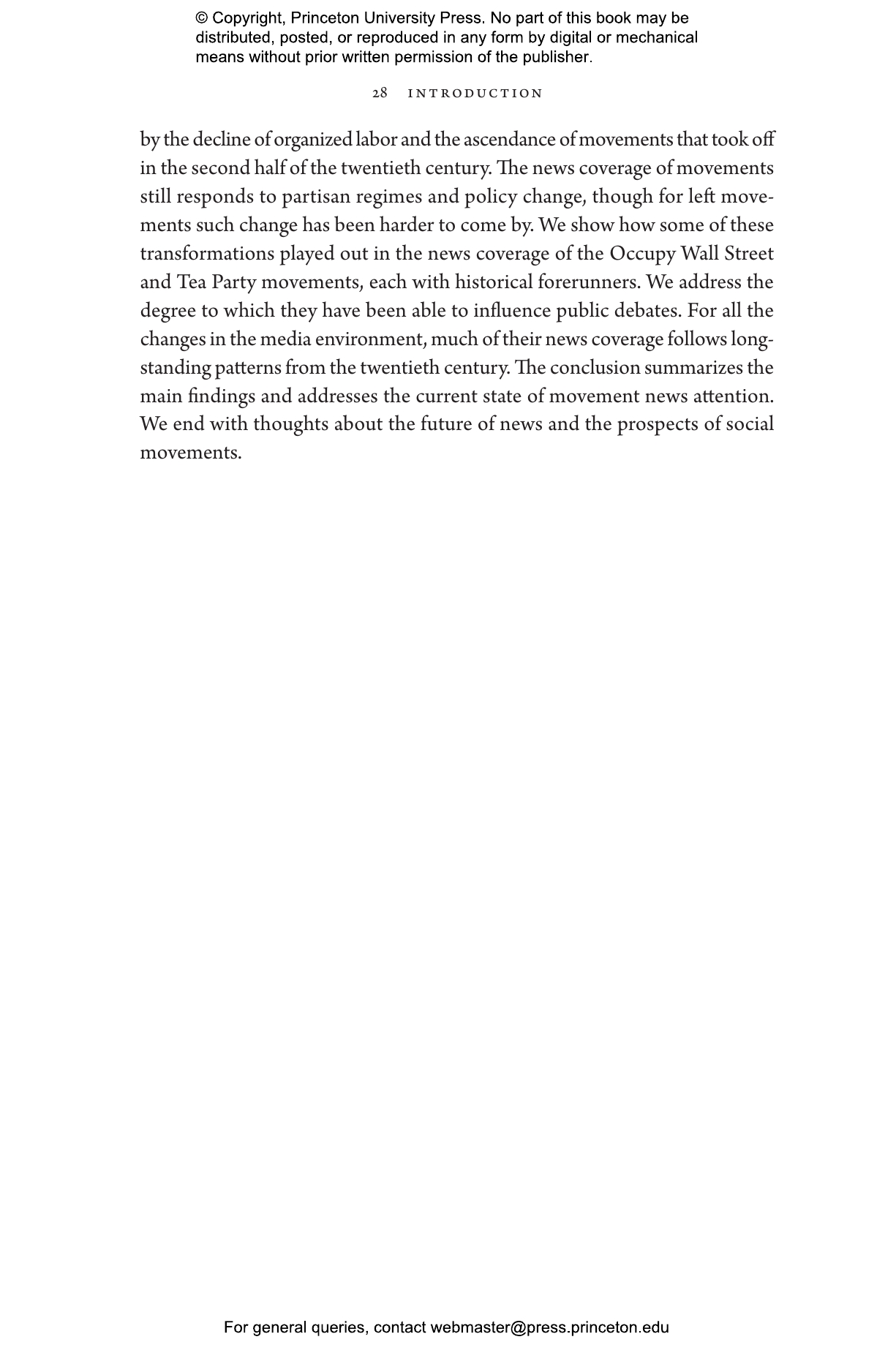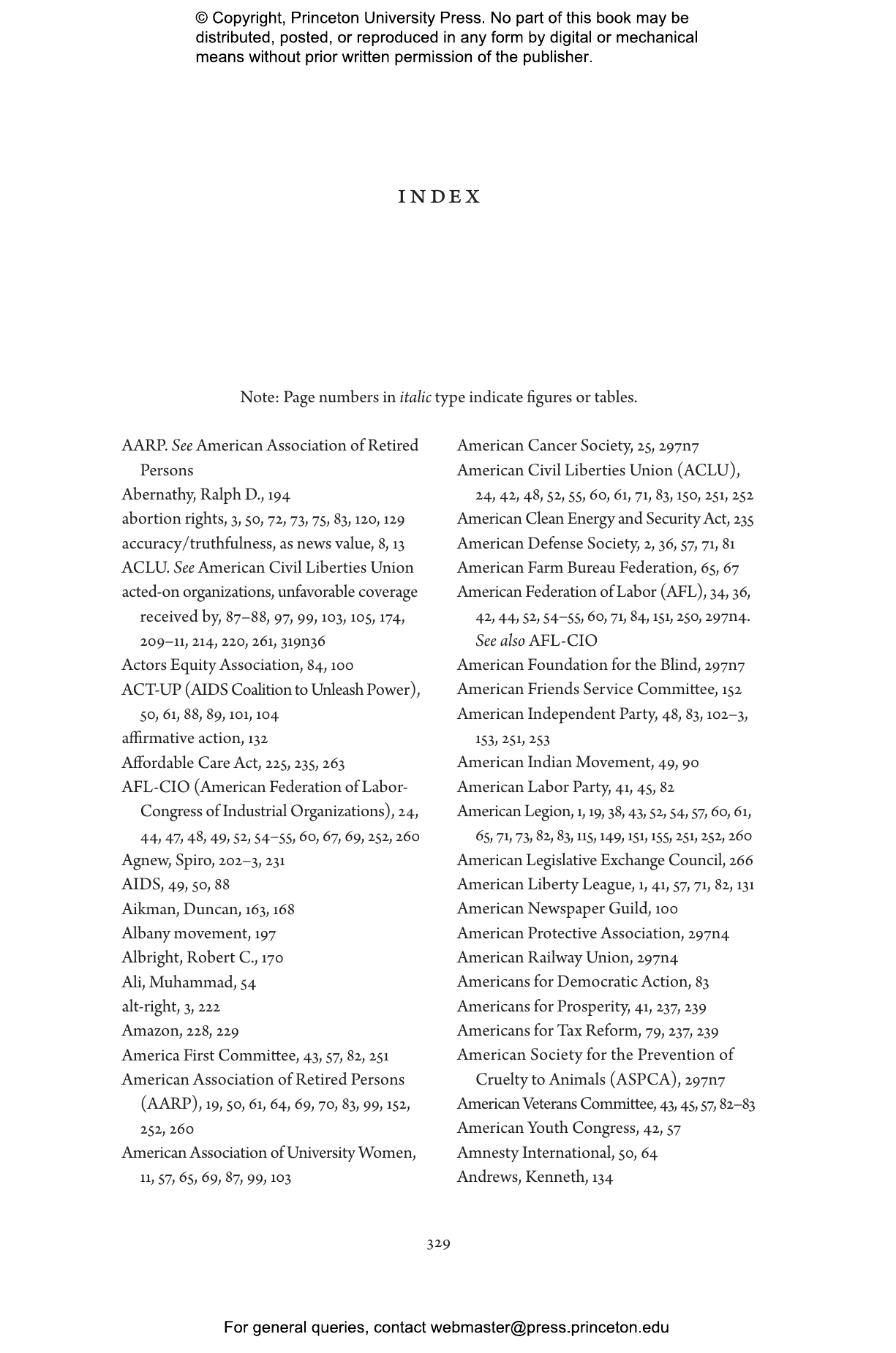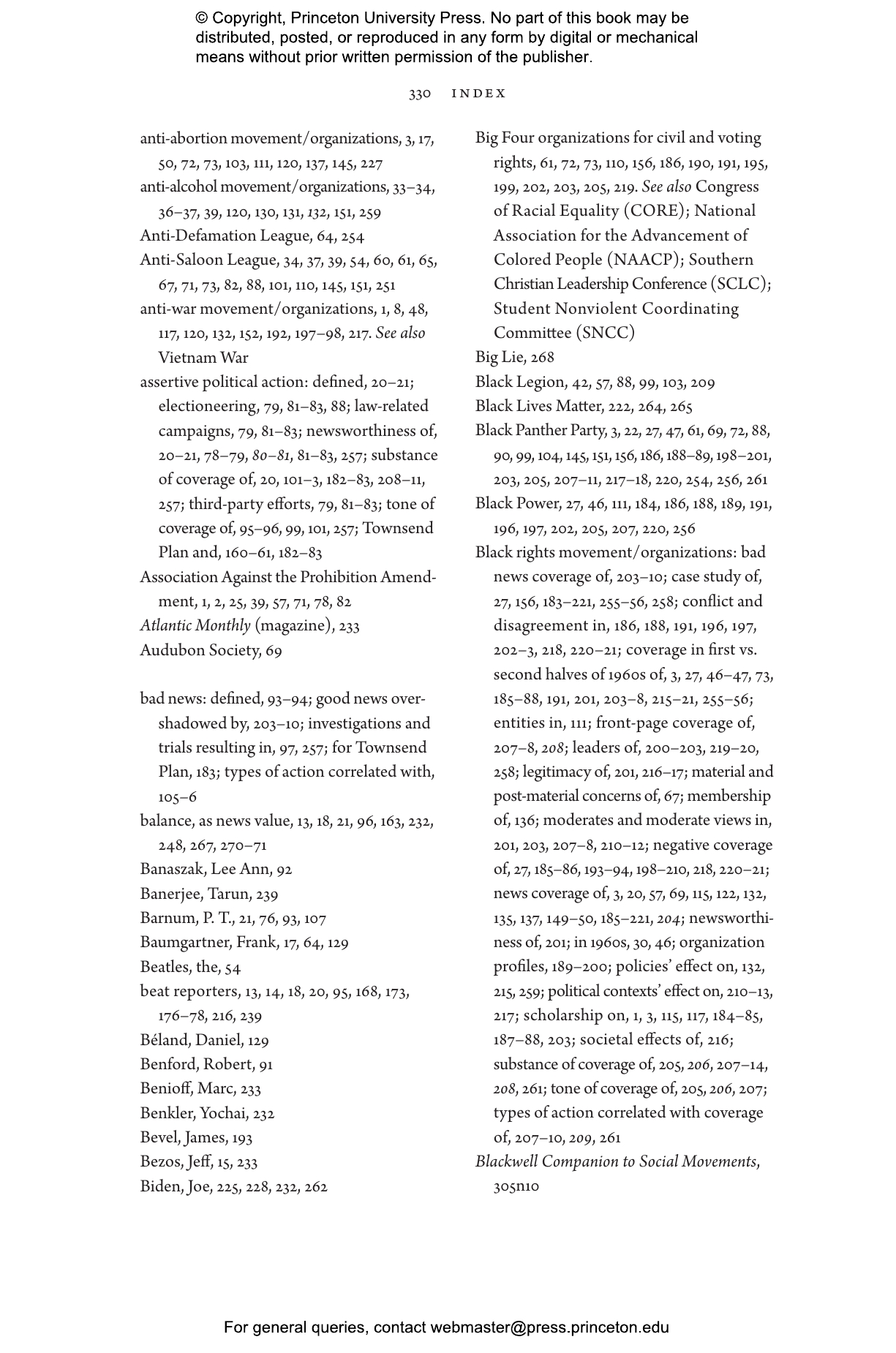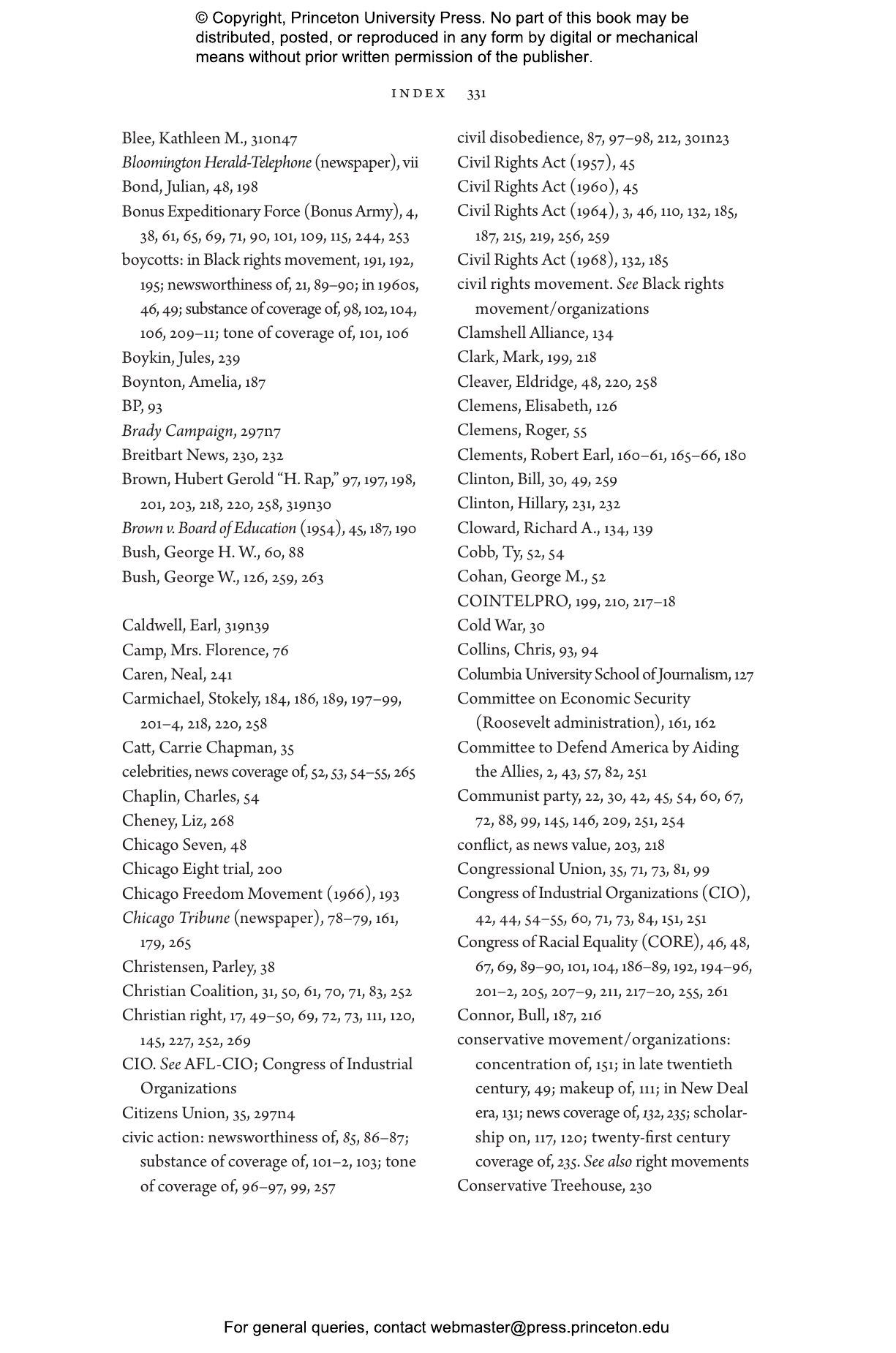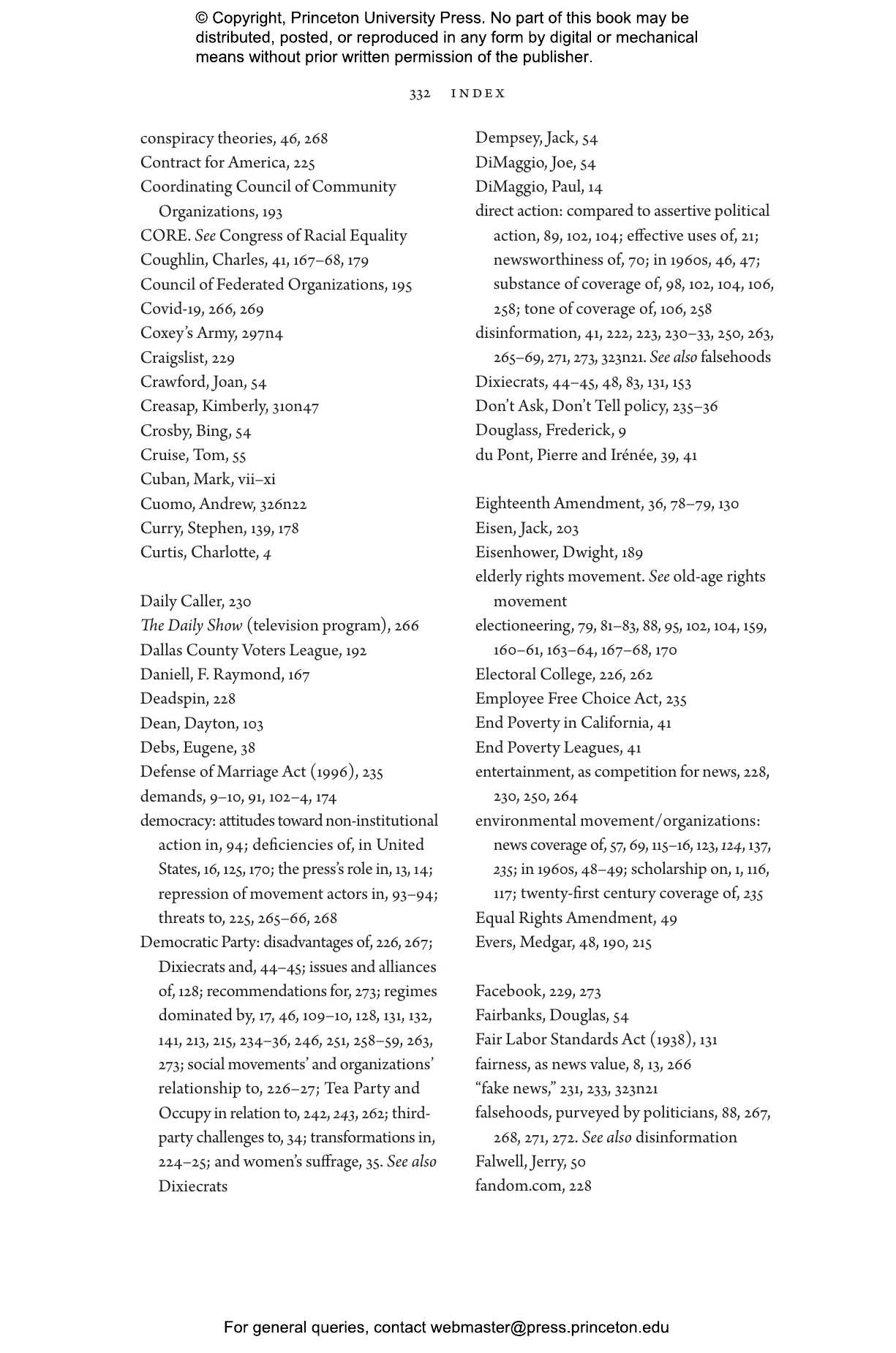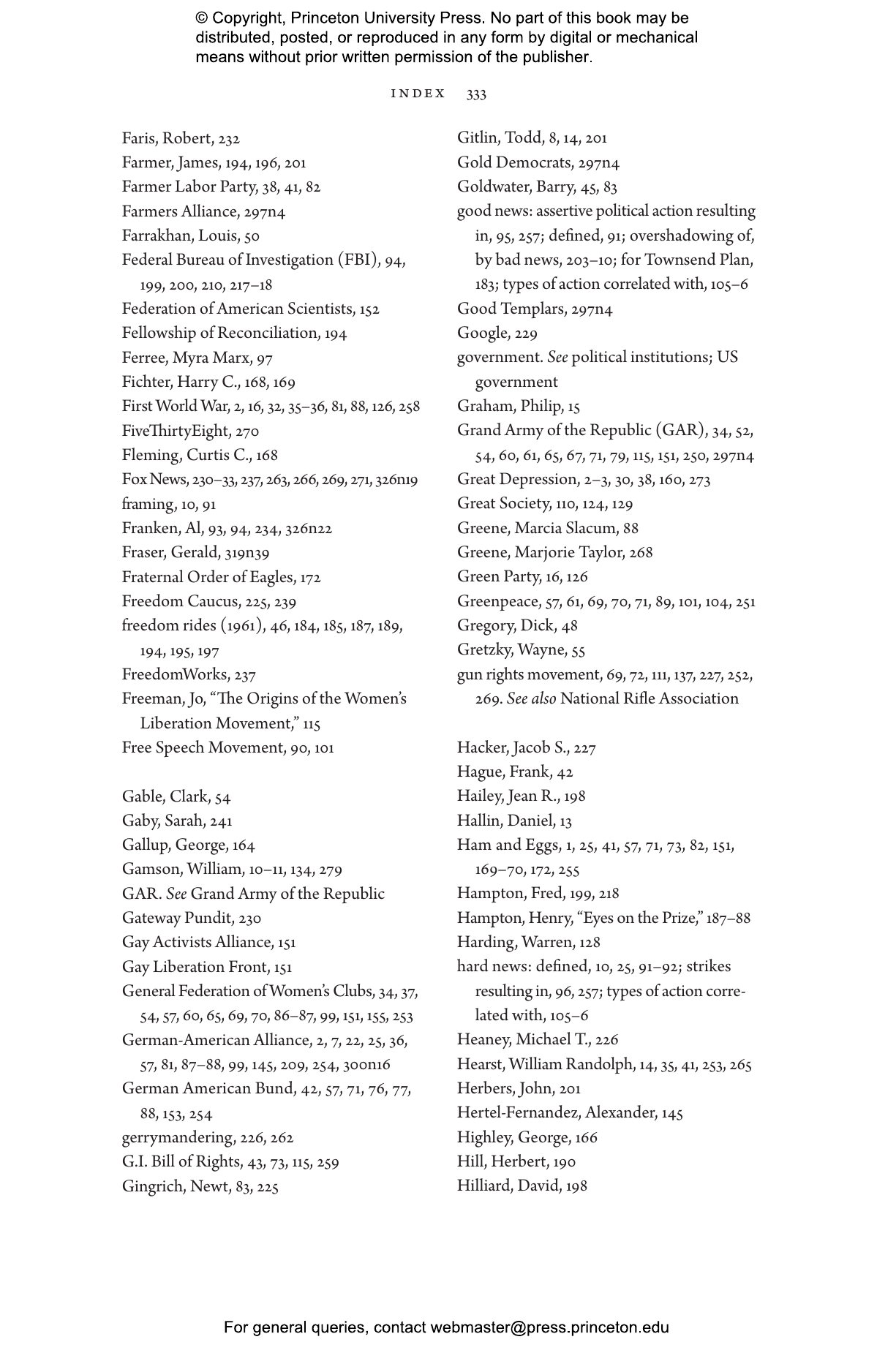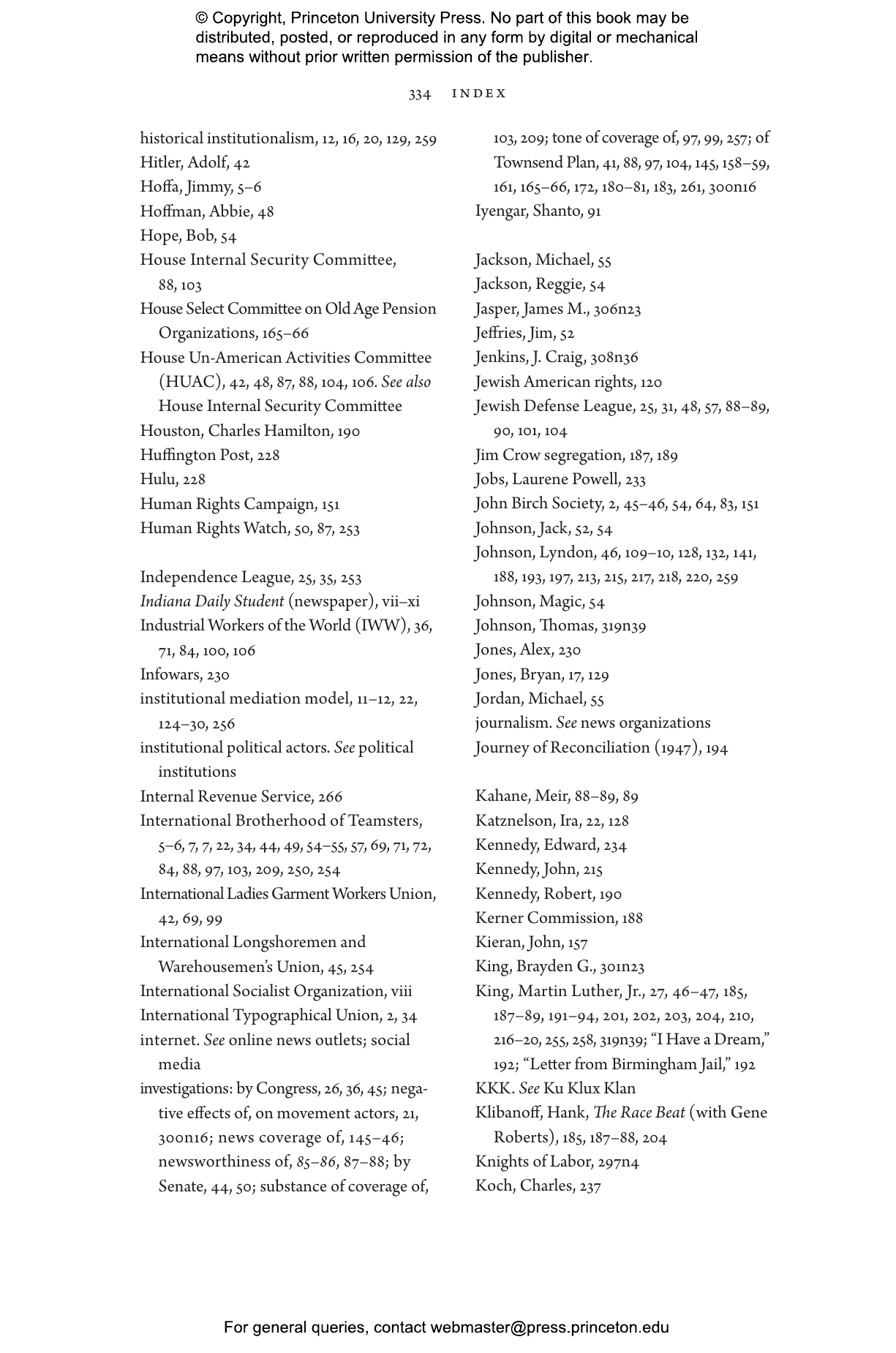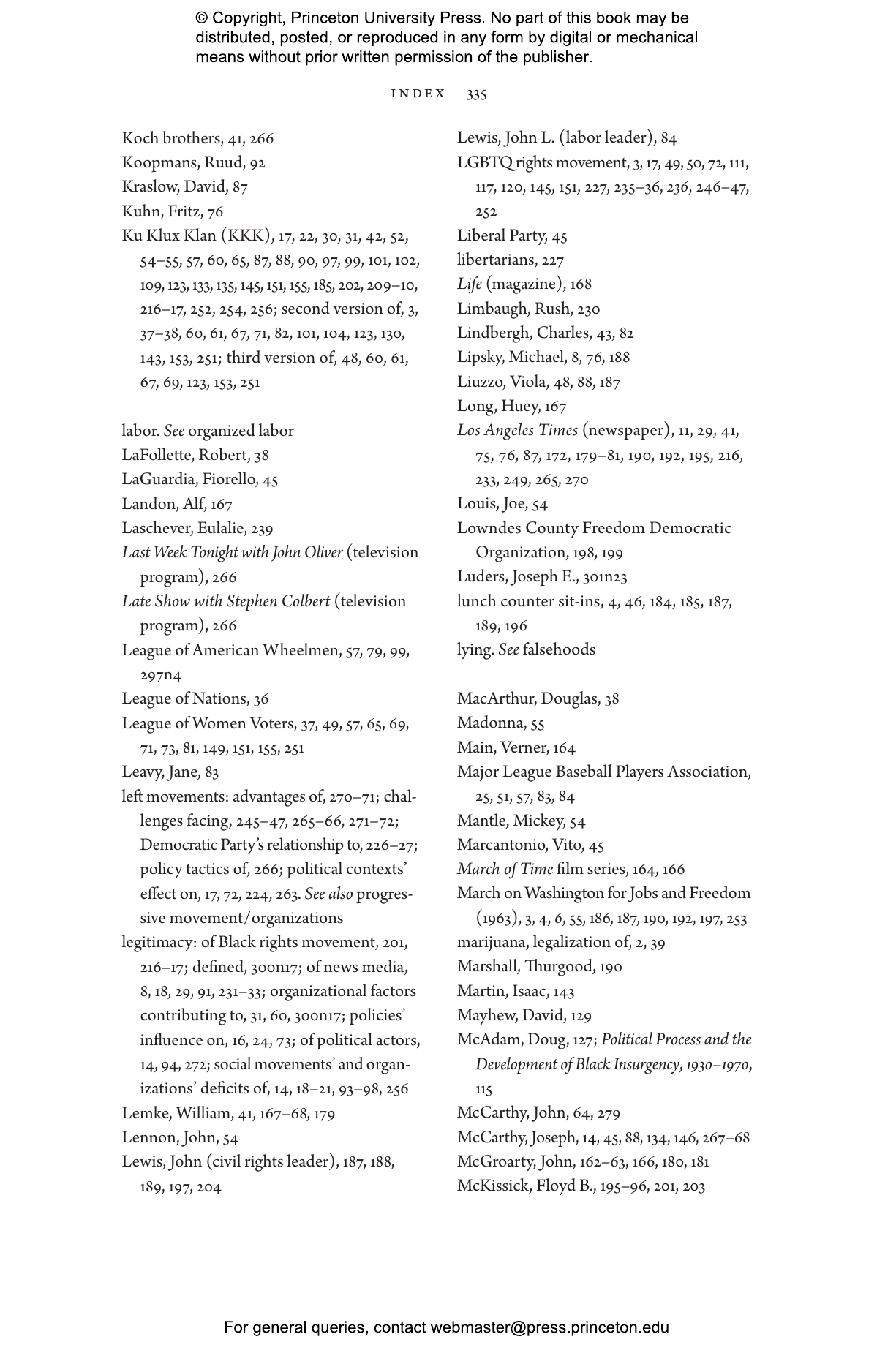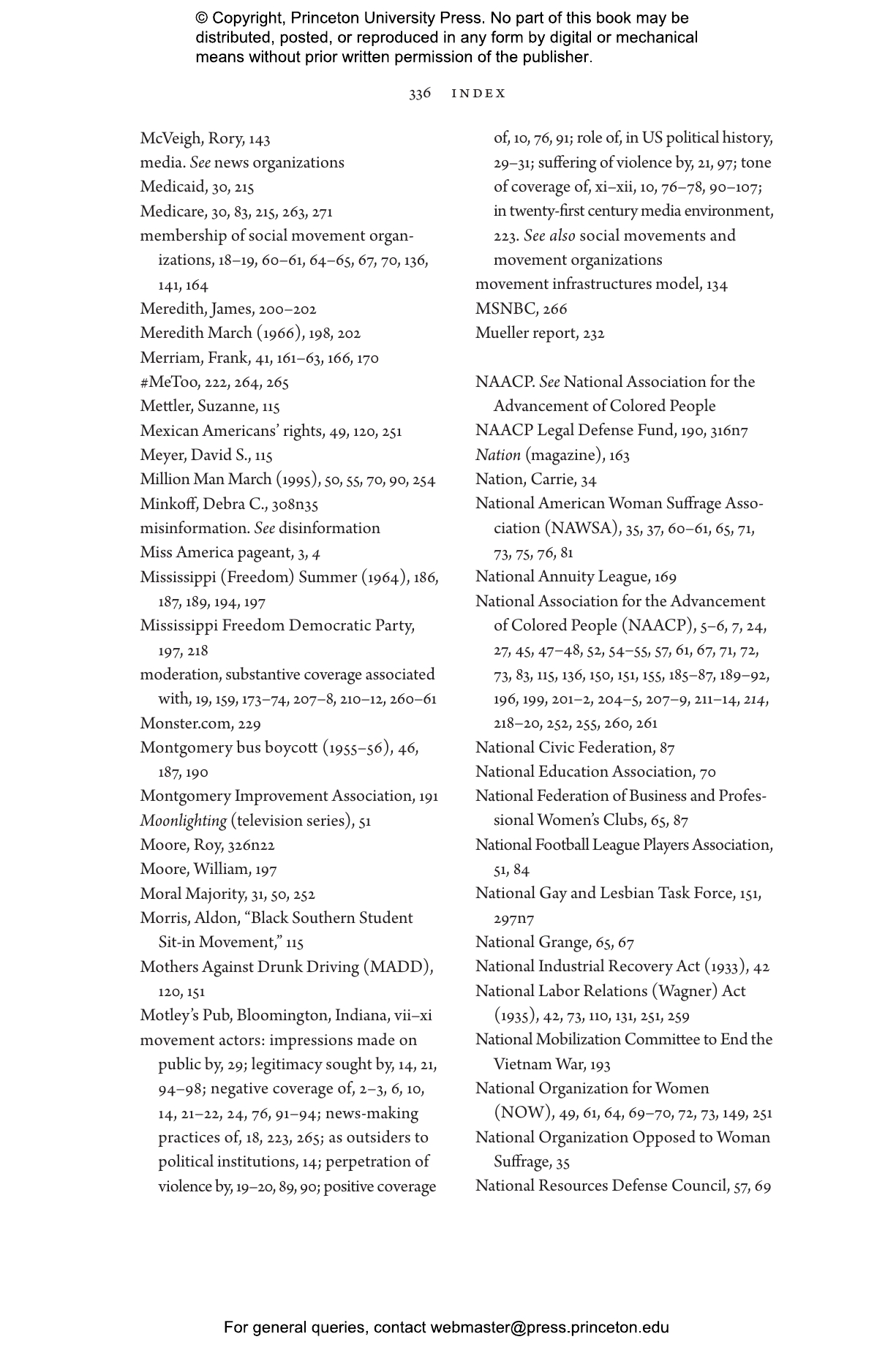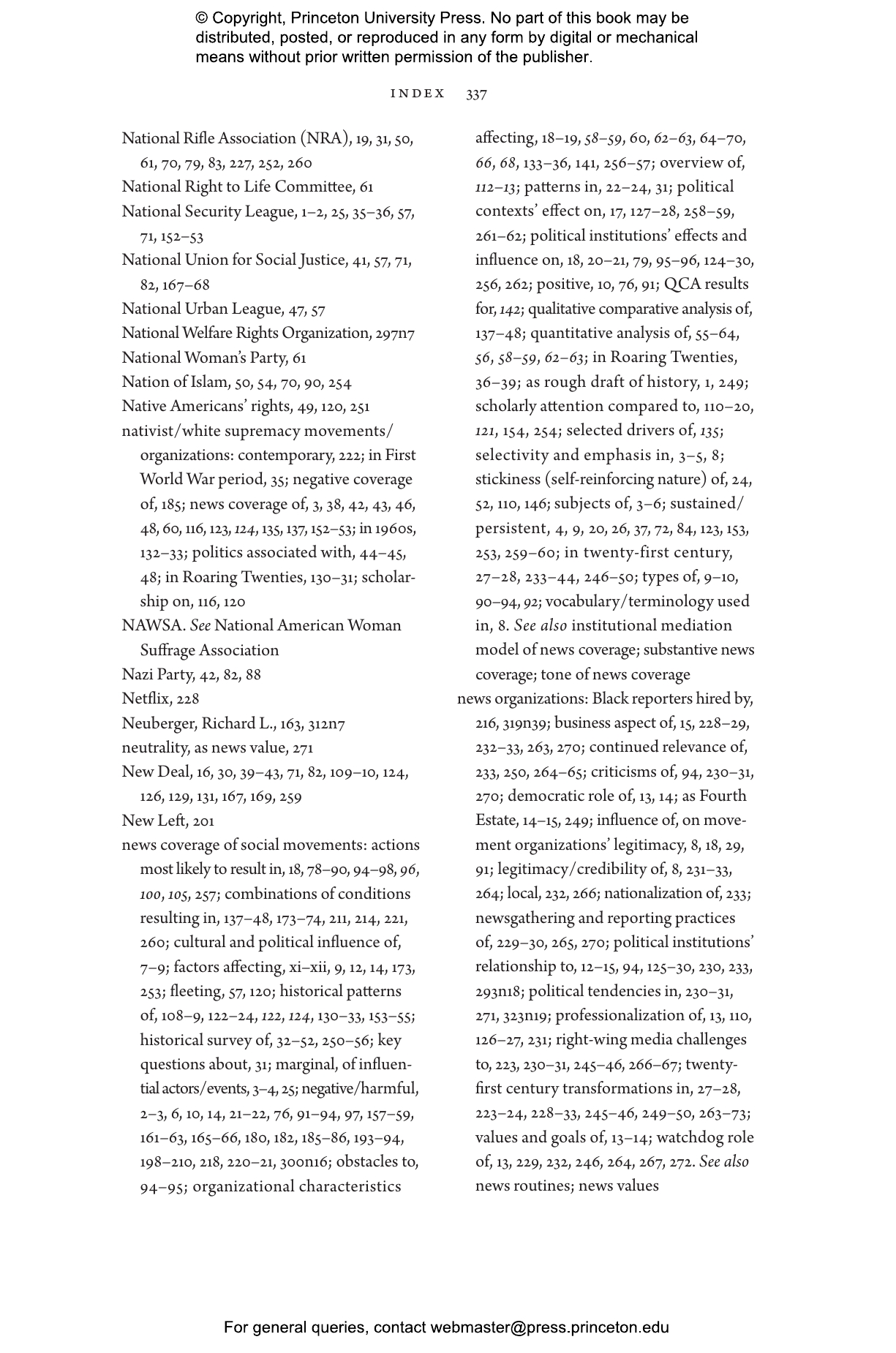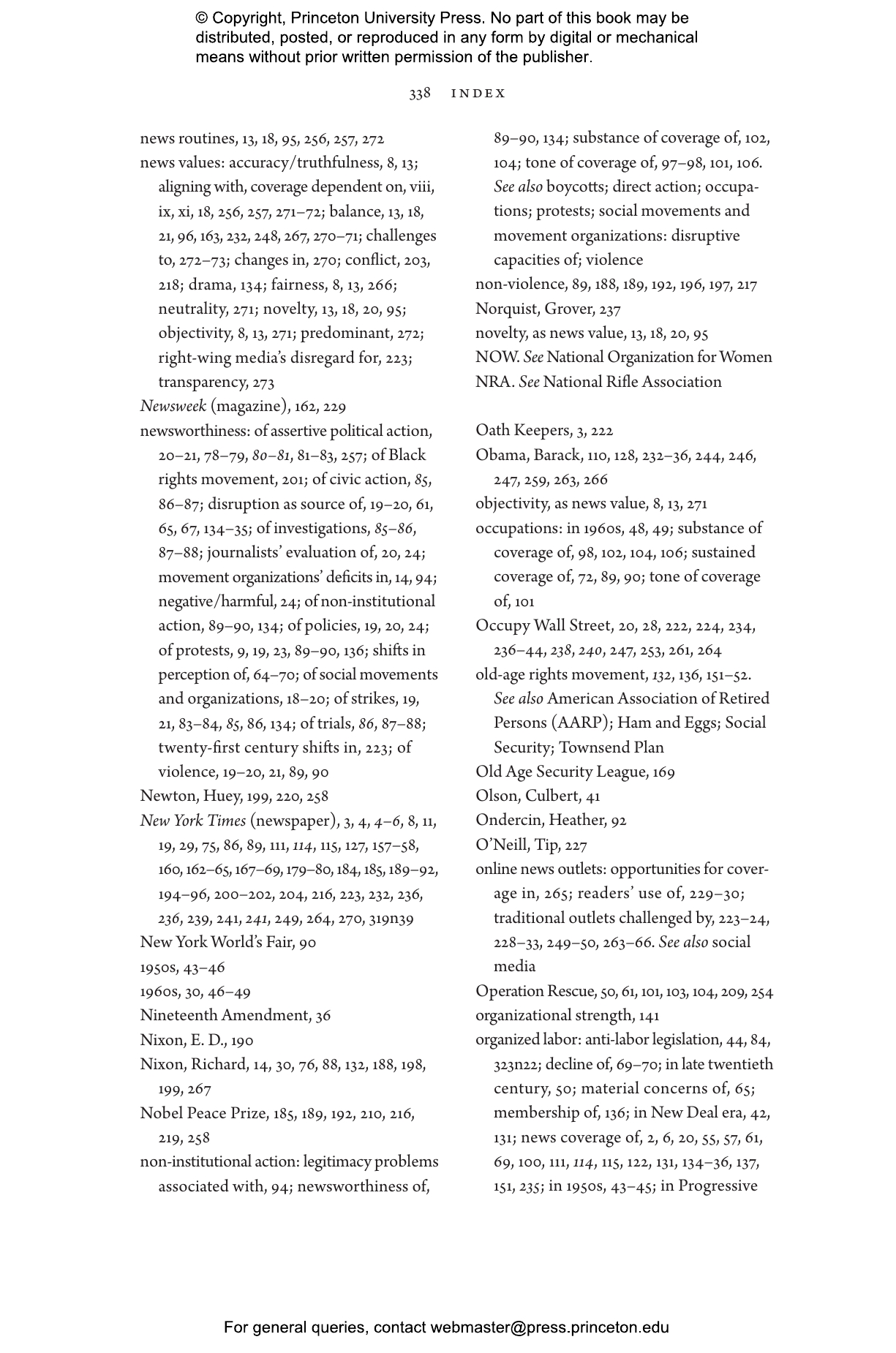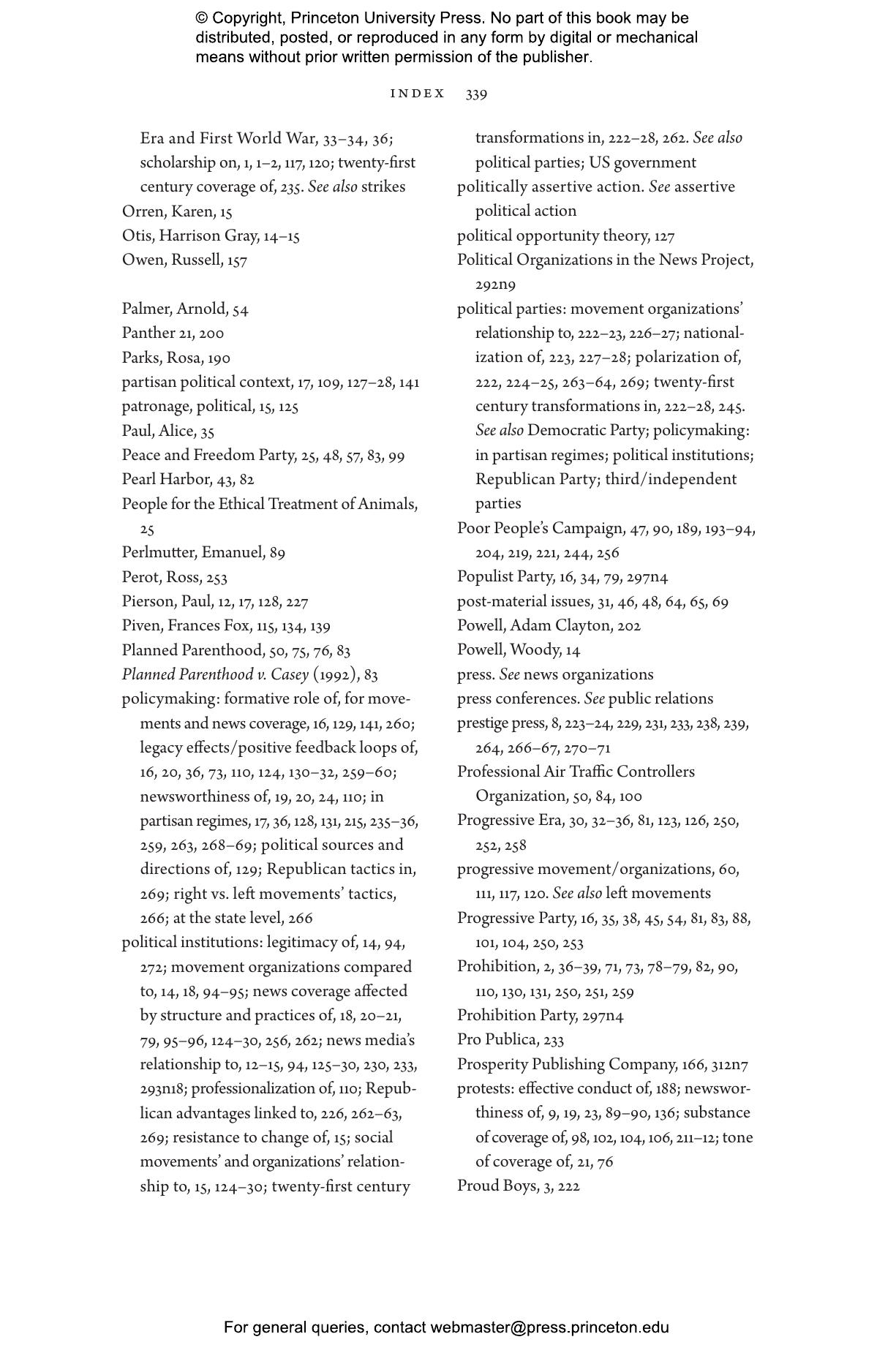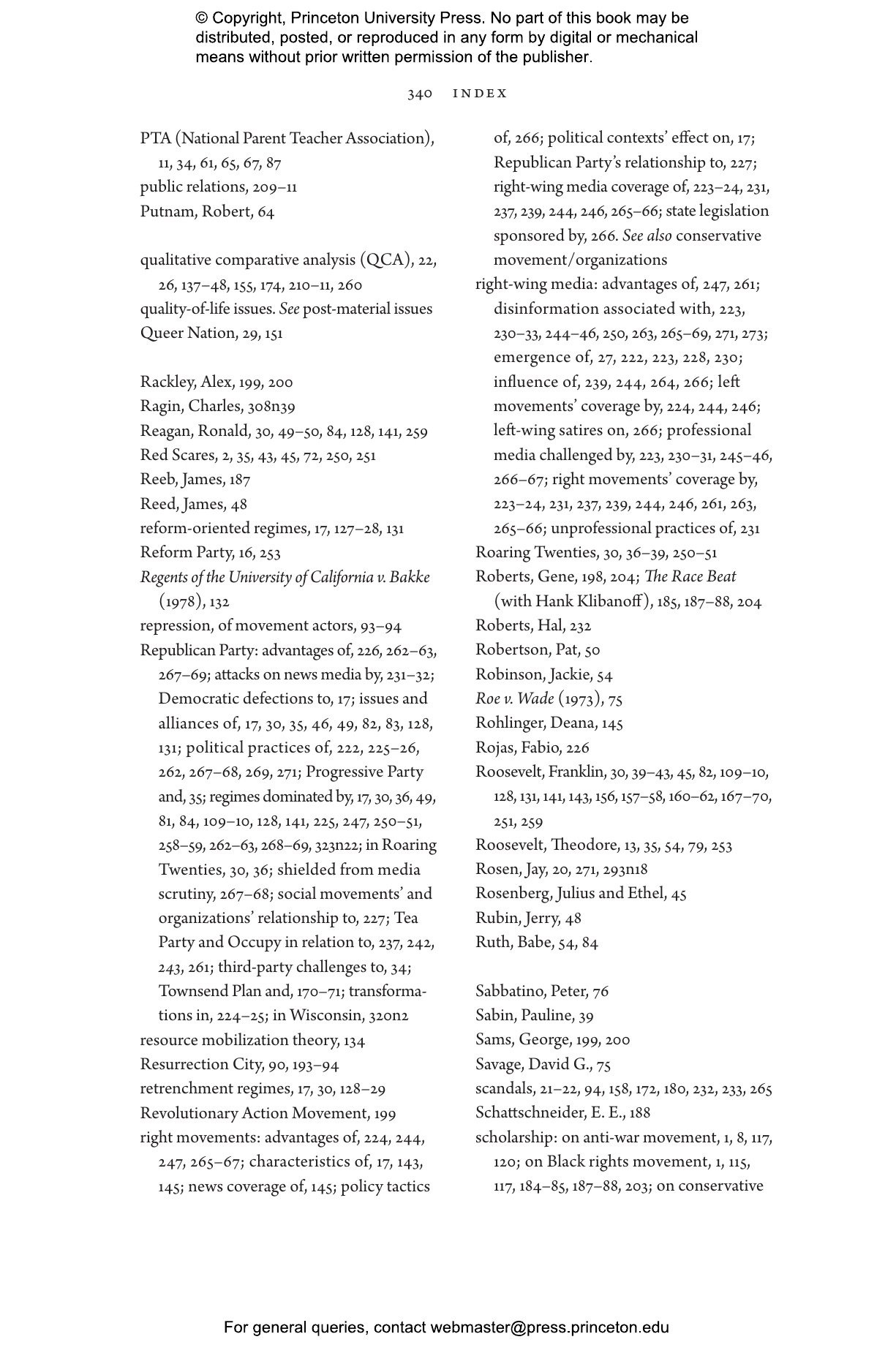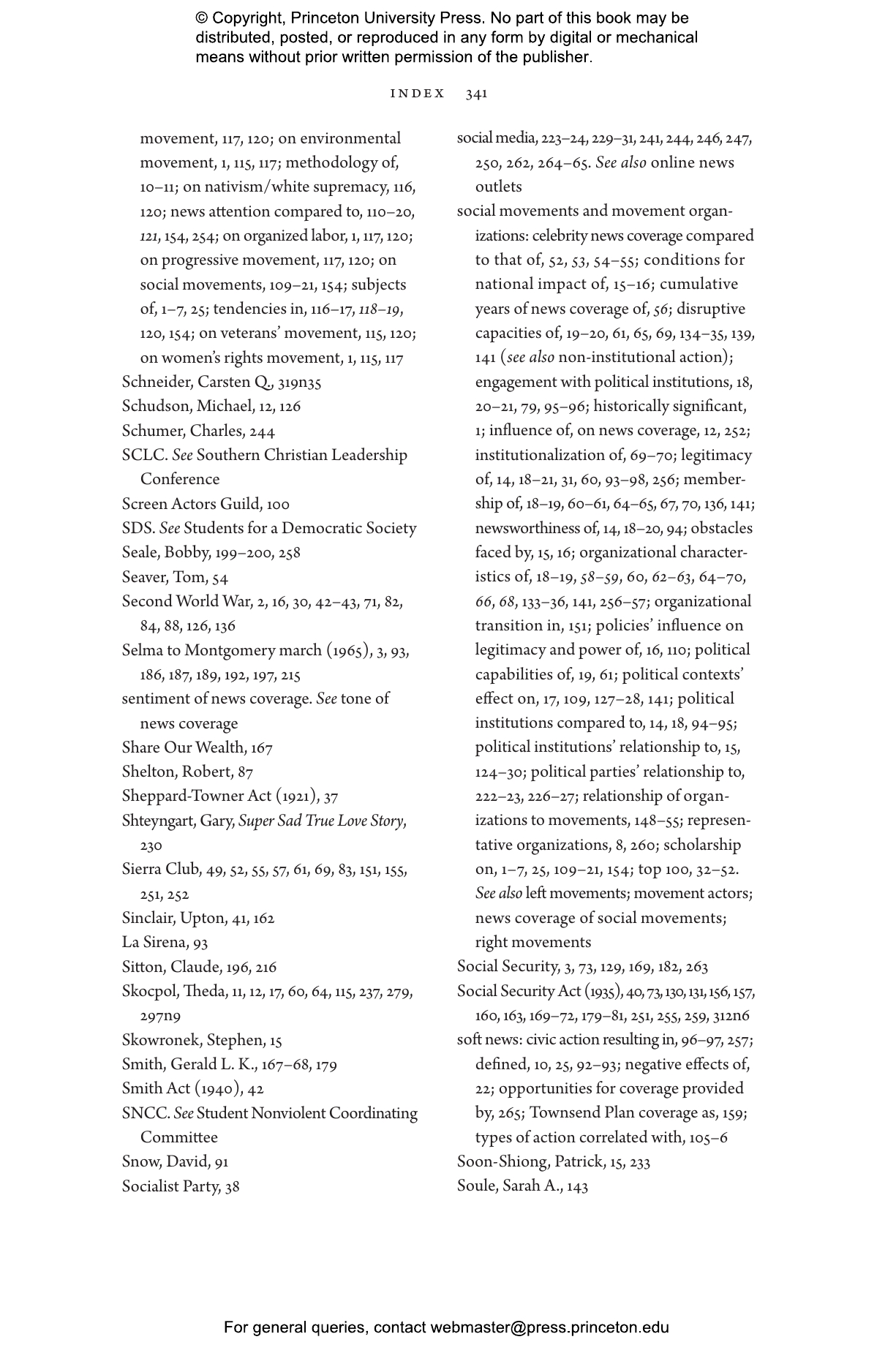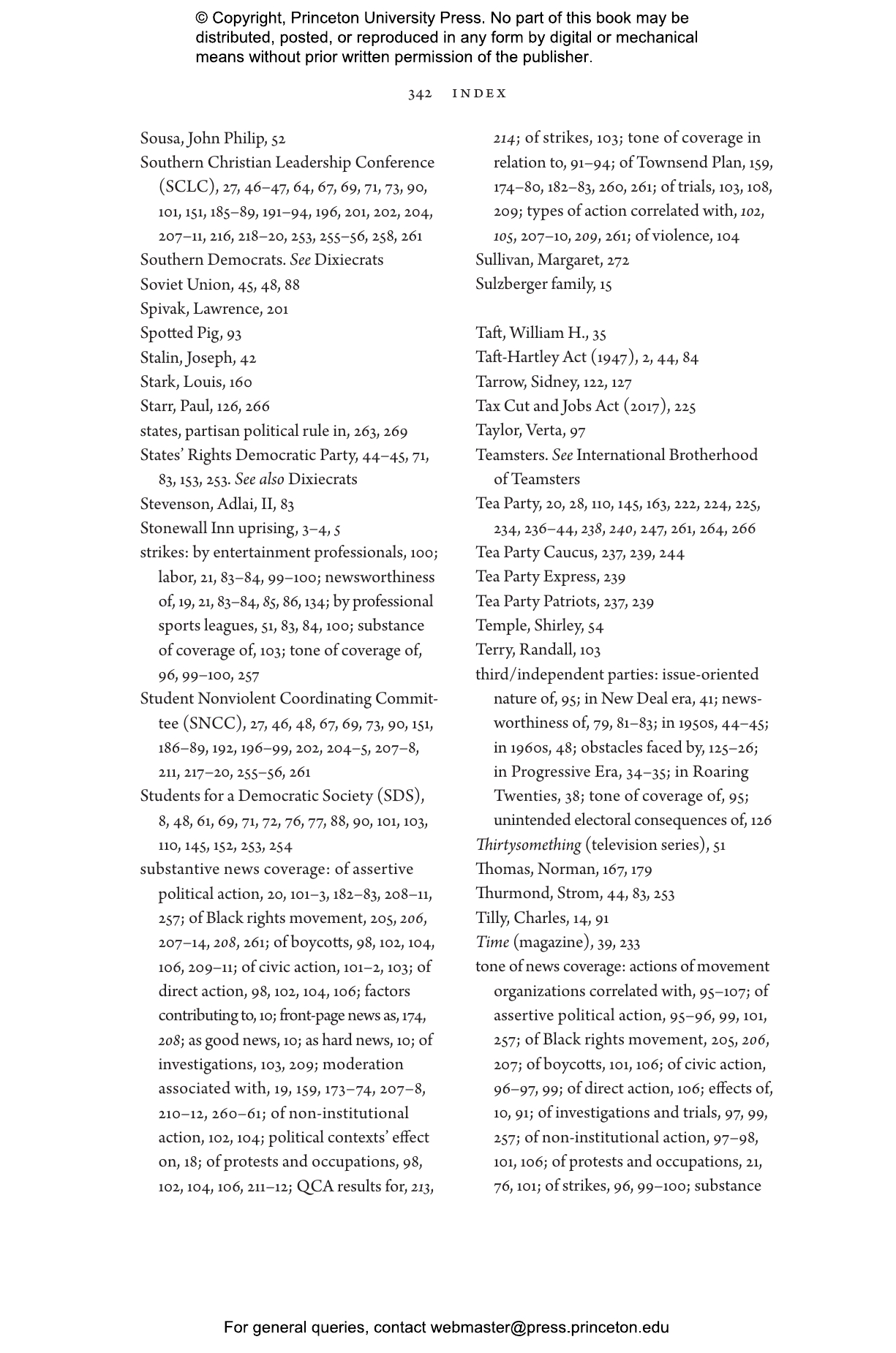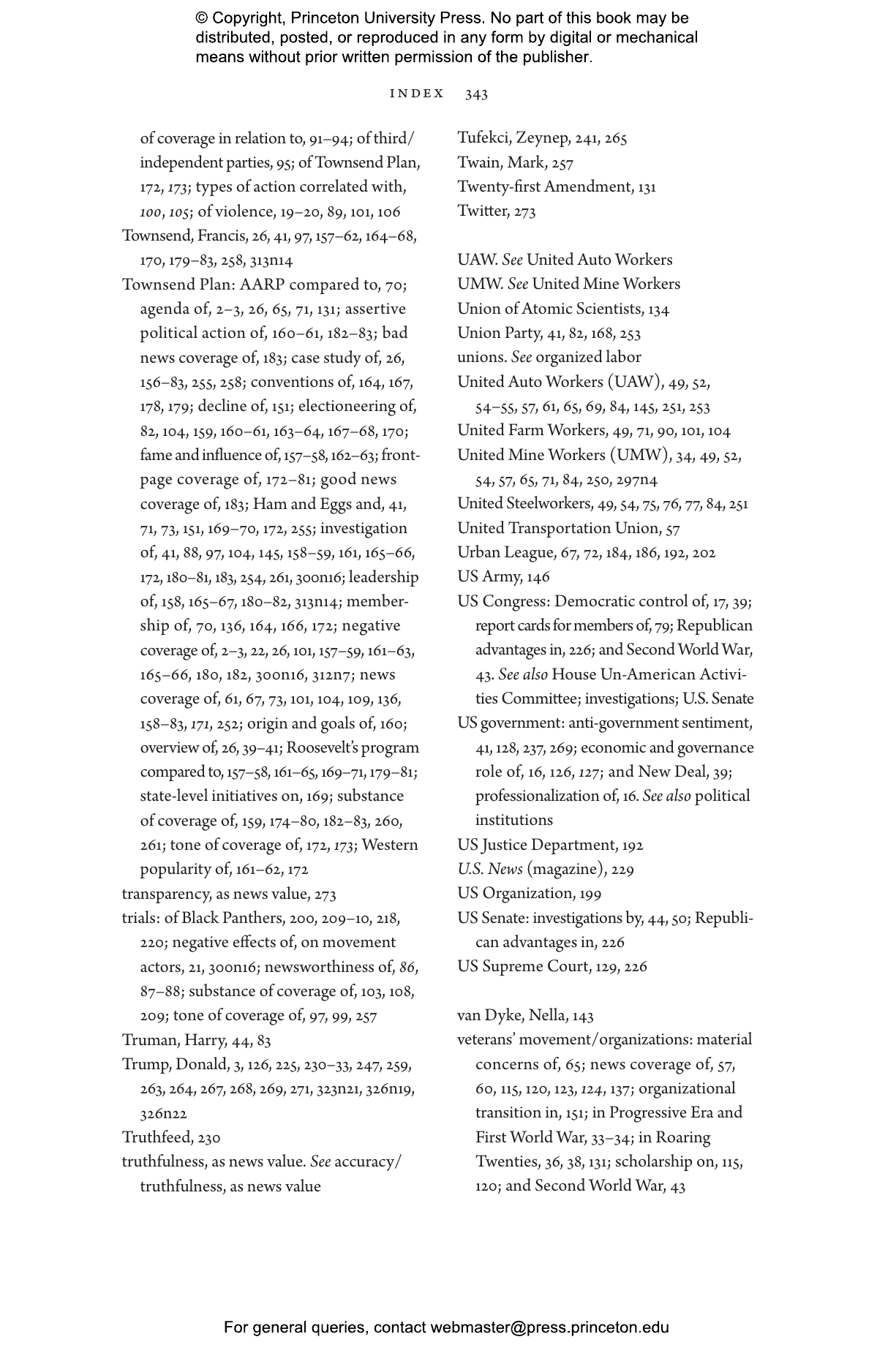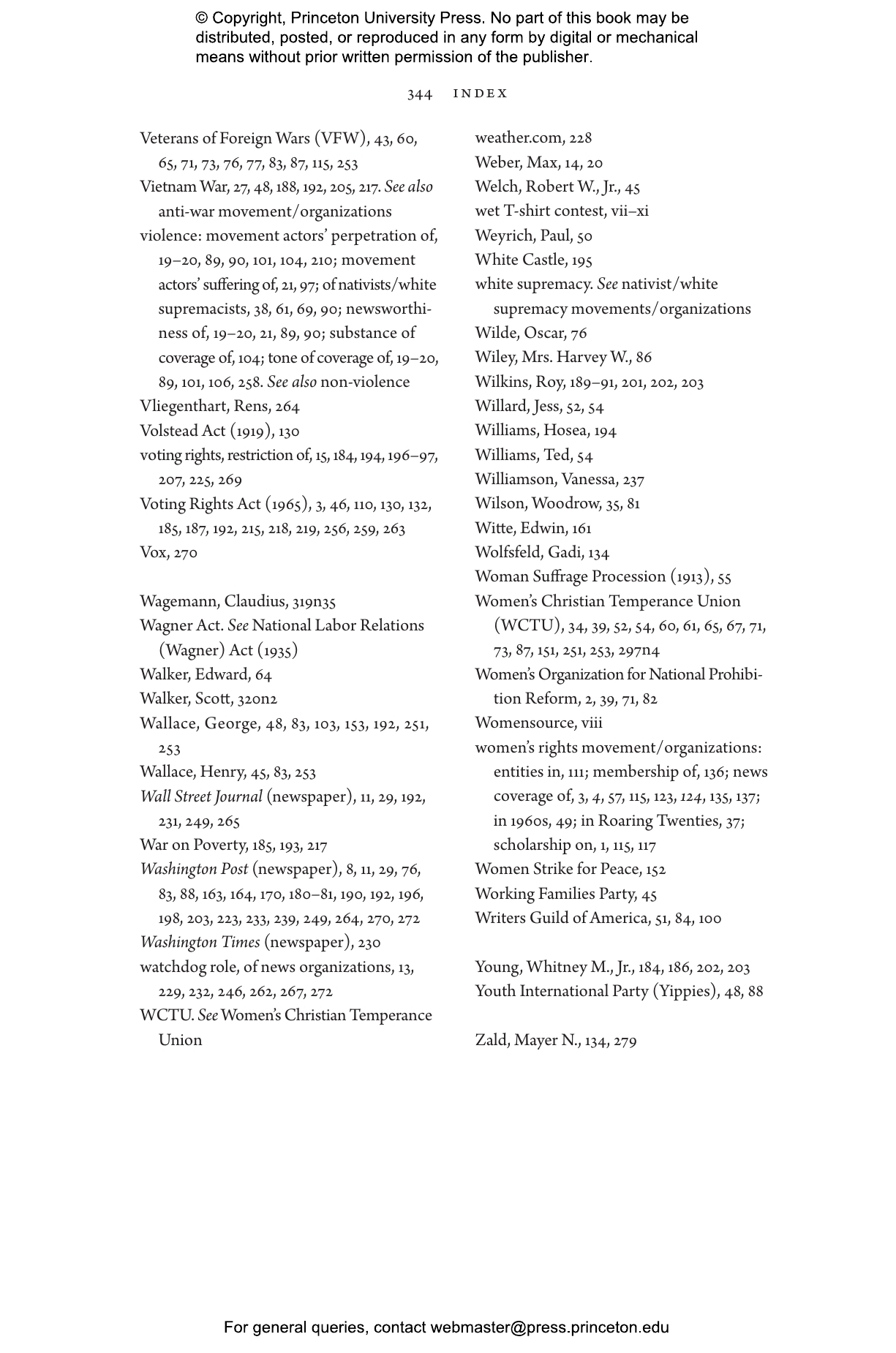A new view of twentieth-century US social movements, Rough Draft of History examines how national newspapers covered social movements and the organizations driving them. Edwin Amenta and Neal Caren identify hundreds of movement organizations, from the Women’s Christian Temperance Union to Occupy Wall Street, and document their treatment in the news. In doing so, Amenta and Caren provide an alternative account of US history from below, as it was refracted through journalistic lenses.
Iconic organizations in the women’s rights, African American civil rights, and environmental movements gained substantial media attention. But so too did now-forgotten groups, such as the German-American Alliance, Committee to Defend America by Aiding the Allies, and Peace and Freedom Party. Amenta and Caren show why some organizations made big news while others did not, why some were treated well while others were handled roughly. They recover forgotten stories, including that of the Townsend Plan, a Depression-era organization that helped establish Social Security. They also reveal that the media handled the civil rights movement far more harshly than popular histories recount. And they detail the difficulties movements face in today’s brave new media world.
Drawing from digitized newspapers across a century and through to the present, Rough Draft of History offers insights for those seeking social and political change and those trying to make sense of it.
Awards and Recognition
- A Choice Outstanding Academic Title of the Year
Edwin Amenta is professor of sociology and political science at the University of California, Irvine. His books include When Movements Matter and Bold Relief (both Princeton). Twitter @EdwinAmenta Neal Caren is associate professor of sociology at the University of North Carolina, Chapel Hill. Twitter @HaphazardSoc
"Amenta and Caren offer readers a comprehensive, solid analysis of the role of print media in movement politics. [Rough Draft of History] is a great read."—Yongjun Zhang, Contemporary Sociology
“A comprehensive, compelling analysis of print media’s coverage of social movements, Rough Draft of History is a great read for activists and social movement scholars alike. Amenta and Caren explore the central role of media and the factors that influence the coverage social movements receive. This careful investigation extends our understanding of the role of the Fourth Estate in movement politics.”—Lee Ann Banaszak, Pennsylvania State University
"Rough Draft of History is an evocative, often surprising consideration of the links between social movements and the press. Combining historical sweep with analytical sensibilities, this fascinating account of media attention and the notice-seeking strategies of movements illuminates critical trends and developments."—Ira Katznelson, Columbia University
“Scholars use newspaper articles to understand social movements, but rarely have they sought to systematically understand the dynamics of press coverage. In this important and innovative book, Amenta and Caren do just that, offering a rich, historically sensitive portrait of American social movements as seen through the often-distorting lens of the country’s newspapers.”—Doug McAdam, Stanford University
“This exciting and important book breaks fresh ground in the study of political movements. Amenta and Caren look at four major newspapers from 1900 forward, to learn which movements got coverage, what kinds of coverage they got, when they got it, and why. Rough Draft of History has much to teach us.”—James Morone, Brown University
“Examining a century of media coverage, Amenta and Caren offer a panoramic perspective on social movements. The results are eye-opening, informing our understanding of how movements gain traction, and why some succeed and others fail. A very impressive work of social science.”—Paul Pierson, University of California, Berkeley
“Rough Draft of History combines a new theory along with some very interesting data to show how media coverage of social movements is a function of organizational characteristics, media structure, and political dynamics.”—Kevin Reuning, Miami University of Ohio
